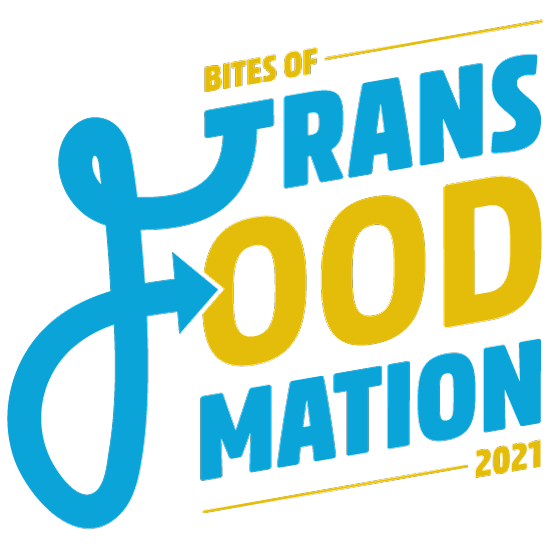MEM Summer Summit 2023
Seminario 2022
Programma
Scarica il programma del Seminario qui:
Seminar 2022 Programma
Speakers
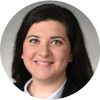
MYRIAM AHMED
Associate Programme Officer (Mediation), swisspeace, Switzerland

H.R.H. RYM ALI
Royal Film Commission Jordan, Jordan
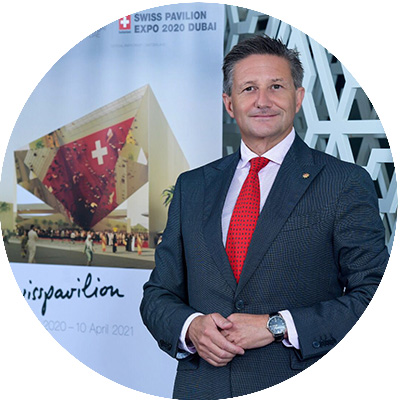
H.E. MASSIMO BAGGI
Ambassador of Switzerland to the United Arab Emirates and Bahrain, Switzerland
Ambassador Massimo Baggi holds an MBA in Economics from the University of Zurich (1988). He then became a research assistant at the Graduate Institute of Public Administration at the University of Lausanne (1989-1990) and completed his academic studies with a diploma training program at the Faculty of International Relations at the University of Geneva. (1993). From 1991 to 1992, he was assistant director of the Institute of Economic Research at the University of Italian Switzerland. In 1992 he joined the Swiss diplomatic service in Bern. After a training period at the Swiss Mission to the UN in New York, he was posted to the Swiss Embassy in London. From 1994 to 1998, Baggi held the post of Diplomatic Collaborator for European Integration Issues in the Federal Department of Foreign Affairs and the Federal Department of Economic Affairs in Bern. From 1998 to 2003, he was an advisor in charge of economic affairs at the Swiss Embassy in Delhi before taking up the same position at the Swiss Embassy in Moscow between 2003 and 2006.
Back in Switzerland, Baggi is head of the Asia and Pacific Division at the State Secretariat for Economic Affairs (SECO) until 2010. He then acts as Consul General of Switzerland in Milan until the end of the World Expo, in 2015.
Baggi took office as Ambassador of Switzerland to the Kingdom of Morocco at the end of January 2016 and was appointed as Ambassador of Switzerland to the United Arab Emirates and Bahrain as of September 2019.
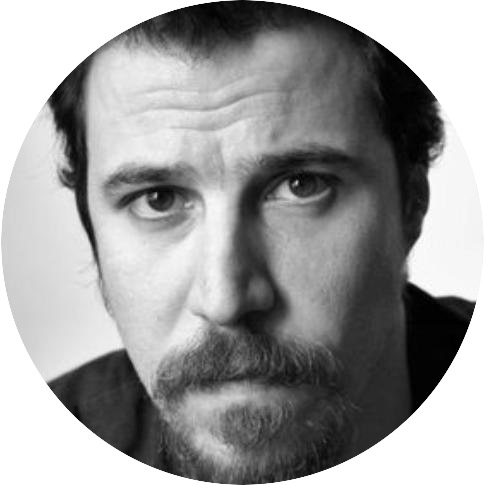
ADNANE BARAKA
Filmmaker, Morocco
After studying at ESAV film school in Marrakech/Morocco, Adnane graduated in directing in 2011. He is a Moroccan independent filmmaker born and lives in Mar- rakech. In 2010, he directed his first short documentary «Talbanine”, a sensitive film about a remote and isolated school in the mountains, enlivened by the pupils and their teacher. Awarded in FIFE Casablanca. In 2019, he finished his first documentary feature «Wandering stars», about three blind young Moroccans defying countless obstacles in order to survive in their pa- rallel world and find true meaning in their lives.
Particularly, «Fragments from heaven» is a film that Adnane has been working on since 2014. The film has been shot in several periods between 2017 and the end of 2019. It is a long path of creation and reflection, which now begins to reveal hope. He is also a musician, researching in acoustic and synthetic sounds through InCave and SENT projects.
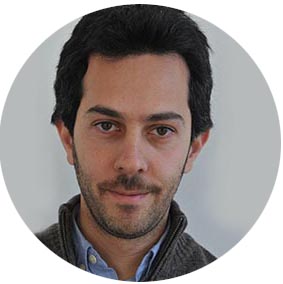
HERMAN BASHIRON MENDOLICCHIO
Researcher and Project Manager, University of Barcelona
PhD in “Art History, Theory and Criticism” from the University of Barcelona. He is currently teaching in different Universities and academic programs internationally: He is Lecturer at the Cultural Management Programme of the University of Barcelona, where he is coordinating the Postgraduate Course on International Cultural Cooperation, and the MA in Management of cultural institutions and companies (blended learning version). He is also a faculty member and advisor at Transart Institute (NY-Berlin-Liverpool), and Professor consultant at UOC (Universitat Oberta de Catalunya) in the MA “Humanities: Contemporary Culture, Literature and Art”. He is the Project Manager of CHARTER (2021-2024), an EU-funded project on cultural heritage skills and competences.
His current lines of investigation involve the subjects of intercultural processes, ecology, participation and mobility in contemporary art and cultural policies, art in public space and the cultural cooperation between different world regions. He has participated in several international conferences and developed projects and research residencies in different countries and world regions.
He combines academic research, cultural management, curatorial practices and artistic methodologies, collaborating with a wide range of networks, projects and organisations internationally.
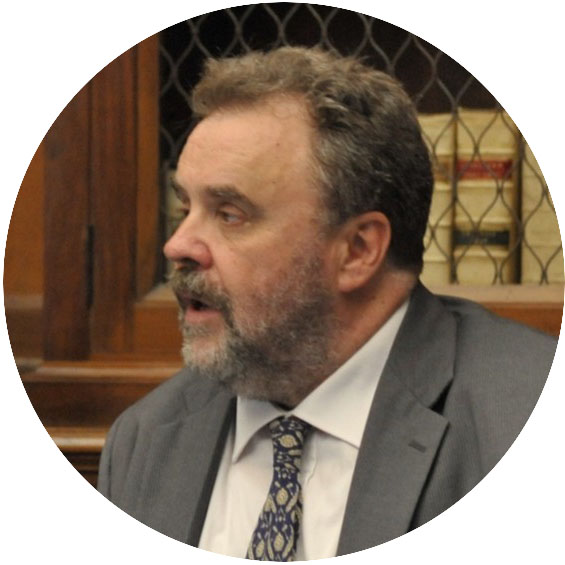
MICHELE BERNARDINI
Full Professor, University of Naples “L’Orientale” (UNIOR), Italy
Michele Bernardini is full professor of Persian Language and Literature and History of Iran and the Ottoman Empire at the University of Naples “L’Orientale”. From 2016 to 2019 he was the director of the Department Asia, Africa and the Mediterranean in this University. He is the editor in chief of the journal Eurasian Studies, jointly published by the Istituto per l’Oriente in Rome and the University of Halle-Wittenberg. Member of the scientific committee of the Series Catalogorum, devoted to the cataloguing of unknown manuscripts collections in Arabic writing, he published, together with Roberto Tottoli in 2011 the Catalogue of the Kahle Collection in Turin.
Among is main interests there is the Turco-Persian relations in the pre-modern and modern times. He published various monographies on this subject as Storia del mondo islamico (VII-XVI secolo), II. Il mondo iranico e turco, Turin, 2003; Mémoire et propagande à l’époque timouride, Paris, 2008 ; Together with Donatella Guida, I Mongoli. Espansione, imperi, eredità, Turin, 2012 and Tamerlano, Rome, 2022. He is the President of the committee for the International Congresses of Turkish Art, and in 2015 he promoted the 15th International Congress of Turkish Art in Naples. Recently he participated to a European project “Justice” on Jihadism and Prison, whose results were published in the volume edited by him and Ersilia Francesca, Jihadismo e carere in Italia. Analisi, strategie e pratiche di gestione tra sicurezza e diritti, Rome 2021.
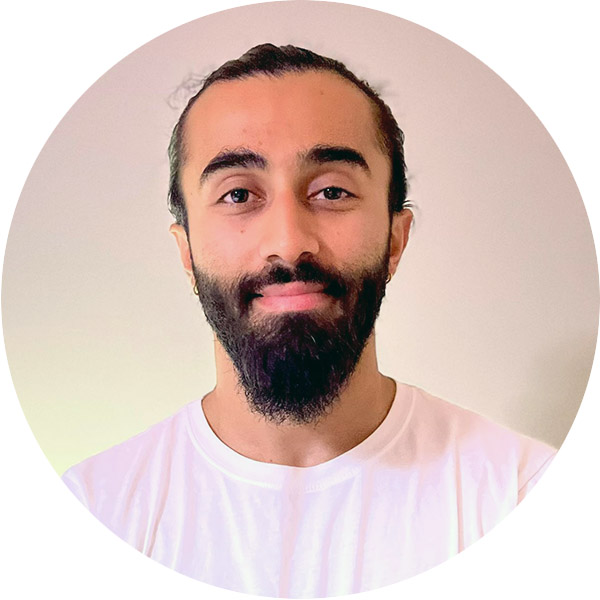
AMIN EMADI
Seminar Facilitator
Global agricultural heritage program specialist at FAO, Iran
Amin was born in Iran and currently lives in Berlin. Throughout his life journey, he has lived in 6 countries. He considers himself an athlete with an extensive sense of humor. He has an academic background in civil and environmental engineering and currently working as an agricultural heritage system specialist at the FAO. He is also a food systems and climate activist, and the most consistent way he tries to contribute to reducing climate impacts, is to convert to a plant-based diet since 2018.
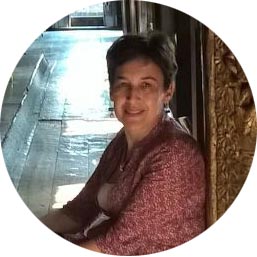
ERSILIA FRANCESCA
Professor of Islamic History, University of Naples “L’Orientale” (UNIOR), Italy
Ersilia Francesca is full Professor of Islamic History at Univ. of Naples “L’Orientale” (UNIOR), Dep. Asia Africa and Mediterranean (DAAM), where she teaches Gender Studies in Islamic Context and Contemporary History of Economics in the MENA region. She is director of CeSMI (Centro Studi sul Mondo Islamico) at DAAM and of Studi Maġrebini (class A journal) publ. by Brill. In 2015 she was visiting scholar at SOAS, and in 2018 she was Directrice d’Études at École Pratique des Hautes Études. She is member of the Scientific Committee of the Intern. Association on Ibadi Studies and chief editor with A. al-Salimi of the series Studies on Ibadism and Oman, Olms.
Her scholarly activity focuses on Islamic law, gender studies in the Islamic context, and history of Islamic economics. She published 5 books and 3 edited books; and wrote over 20 articles in PR journals and contributions in edited books in the last 10 years. Her 2002 book titled Teoria e pratica del commercio nell’islam medievale is considered a milestone in the field of studies on Ibadism and early Islam. Her book Economia, religione e morale nell’islam (Carocci 2013) is the first attempt of a comprehensive reconstruction of the Islamic economic thinking in Italian.
In the field of gender studies she participated in the project “Musulmane d’Italia”; she co-edited the special issue of Studi Maġrebini titled Emerging Actors in Post-Revolutionary North Africa. Gender Mobility and Social Activism (2017), and published several articles; the most recent is “Gender and Economics in Mediterranean: Looking for New Opportunities for North African Women” Palgrave (2021). She is in the scientific board of the series Donne, fedi, culture
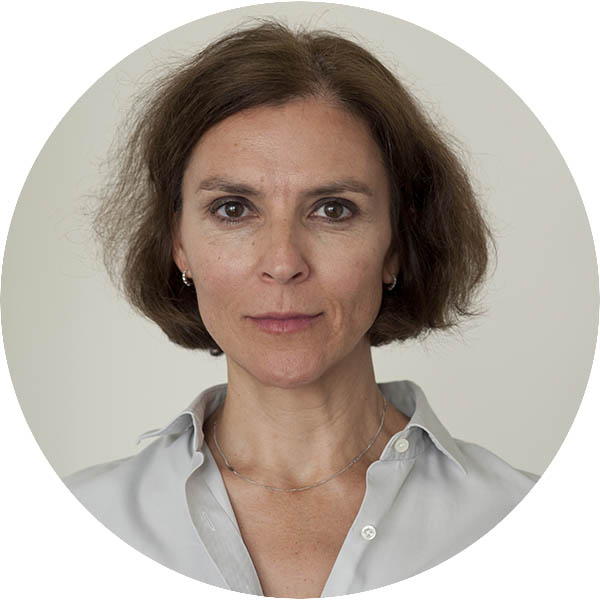
CAROLE GUERTLER
Seminar Facilitator
Independent consultant in sustainable development, cultural and creative economies and media, Switzerland
Carole Guertler is an independent consultant in sustainable development, in arts, cultural & creative economies, and media. She specialized in organisational development & capacity building, project and programme work, grantmaking and communication in the fields of philanthropy, NGO / NPO, social impact entrepreneurship and CSR.
She has been trained in culture/arts, journalism/communication and NPO management/leadership, and has been primarily working in the Mediterranean & Middle East Region as well as in Western and Southeast Europe. Thanks to her previous work for a private foundation and development organisations as well as a journalist, she maintains an international network and collaborations.
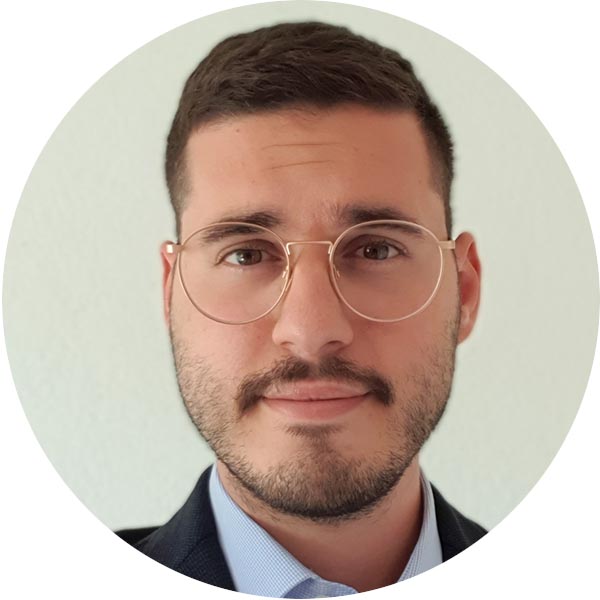
MATHIEU HEINZMANN
Advisor to the Swiss Special Envoy MENA, MENA Division, Federal Department of Foreign Affairs (FDFA), Switzerland
Mathieu Heinzmann has been working as an advisor to the Swiss Special Envoy MENA since February 1, 2022. In parallel, he is an Israel/Palestine Program Specialist at the Peace and Human Rights Division (PHRD) of the Federal Department of Foreign Affairs (FDFA) in Bern.
Previously, he was based in Ramallah as an academic intern at the Representative Office of Switzerland in the Occupied Palestinian Territory.
During his studies in international relations, Mathieu Heinzmann had the opportunity to do academic exchanges at Saint Joseph’s University in Beirut and at the American University in Cairo.

LAURENCE JEANGROS
Environmental scientist specialised in food systems, Switzerland
Laurence Jeangros is an environmental scientists with a master’s degree from the Swiss Federal Institut of Technology in Zurich. During her studies, she has spent a year in Chile as an exchange student and explored power dynamics within tomato food systems in Ghana for her Master’s thesis. Laurence has spent a year interning at the Permanent Mission of Switzerland to the United Nations organizations in Rome, where she became actively involved in the project “Bites of Transfoodmation”. She is currently working at the Center Enterprise for Society (E4S) at the Swiss Federal Institut of Technology in Lausanne on projects related to food.
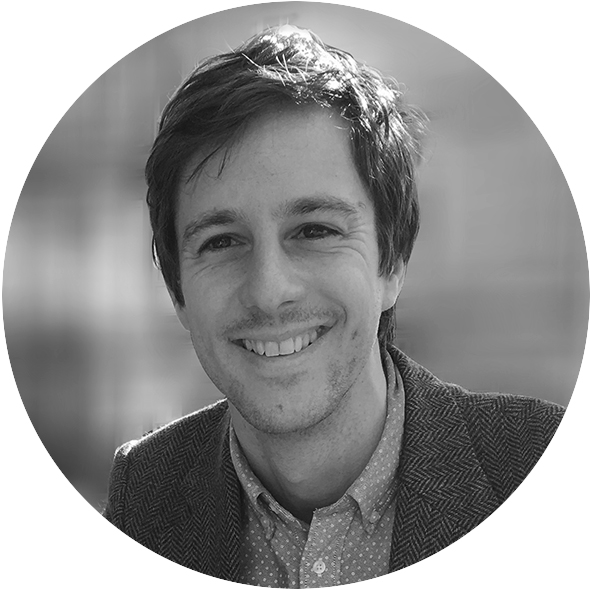
MICHAEL KRIEGER
Manager of the Leading House MENA, HES-SO University of Applied Sciences and Arts Western Switzerland, Switzerland
Michael Krieger is a scientific officer at the HES-SO University of Applied Sciences and Arts of Western Switzerland. He is the manager of the Leading House for the Middle East and North Africa.
Michael has been active in the field of university administration for more than ten years. He has held various positions in international relations, student services, and management of study programmes at the University of Lausanne (2010-2016), the University of the West of Scotland (2016-2018) and the HES-SO University of Applied Sciences and Arts Western Switzerland (2018-present). He also worked as a research assistant at the Swiss School of Archaeology in Greece (2010-2014).
Michael holds a Master of Arts in Ancient History of the University of Lausanne. He has published several works as an author and as an editor in the field of archaeology, ancient and contemporary history.
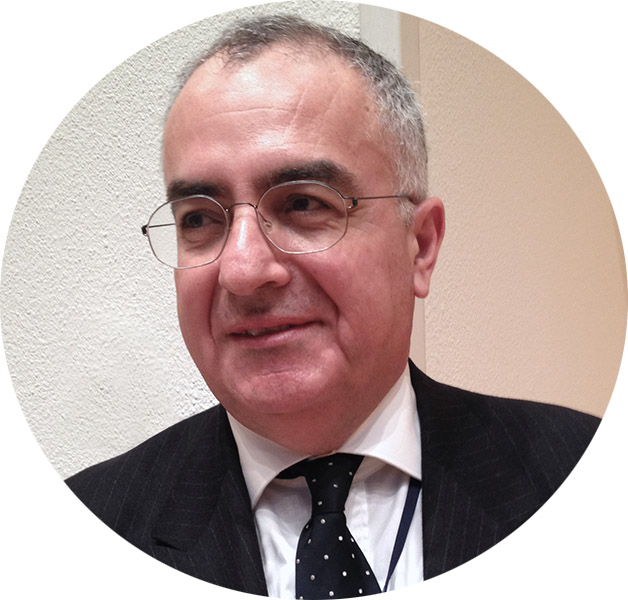
ANTOINE LAHAM
Deputy of the Swiss Special Envoy MENA, Federal Department of Foreign Affairs (FDFA), Switzerland
Until taking up his current position in February 2022 as Deputy of the Swiss Special Envoy MENA, Antoine Laham, on secondment by the Swiss Federal Department of Foreign Affairs (FDFA) – worked in the capacity of Senior Political Affairs Officer at the Office of the UN Special Envoy for Syria in 2013. Earlier, he was the first Country Director – Lebanon for the Geneva Center for Security Sector Governance (DCAF). In the latter capacity, he was associated as Senior Advisor to the joint Berghof Foundation / UNDP Lebanon – Peace Support Office on Consensus Building, Constitutional Empowerment and Civil Peace.
From 2007 to 2011, he contributed to the set-up and organization of the Inter-Lebanese Dialogue that took place in Switzerland and Lebanon. From 1999 to 2001, Antoine – seconded by the FDFA – worked as Regional Administration East-Kosovo with the United Nations Mission in Kosovo (UNMIK) entrusted the implementation of the United Nations Security Council Resolution 1244 (1999). Previously, from 1996 to 1998, Antoine Laham – seconded by the FDFA – worked as Deputy Director for Human Rights and Democratization with the OSCE Mission in Bosnia & Herzegovina tasked with the implementation of the Dayton Agreement.
Antoine Laham holds a Diplôme d’Etudes Supérieures (DEA) in Finances, a Master degree in Economics a Bachelor degree in Sociology; a Diploma in Public Relations; and a Diploma in New Public Management from the Geneva University. He has published a number of studies covering the domain of Human Rights, Democratization, Governance and Decentralization.
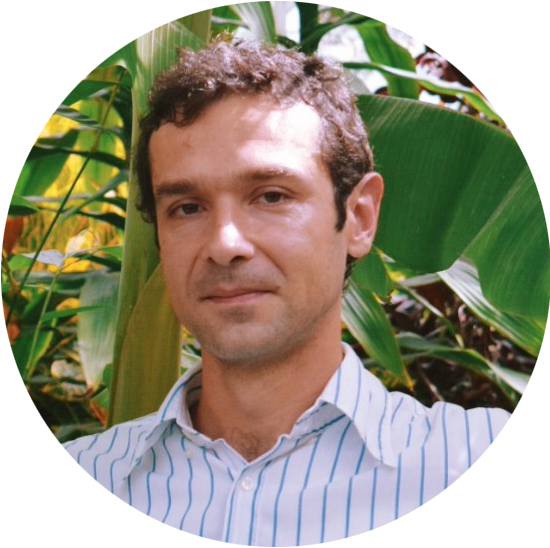
MARTINO LOVATO
Seminar Facilitator
Professor, University of Macerata, University of St. Benedict and St. John, Italy
Martino Lovato holds a PhD in Comparative Literature from the University of Texas at Austin. He teaches Arabic literature at the University of Macerata, and Italian literature at the College of St. Benedict-University of St. John. His research focuses on the Mediterranean as a site of interdisciplinary enquiry between Italian, Arabic, and French literatures and cinema. Appearing in venues such as The California Journal of Italian Studies and The Cambridge Companion of Slavery and Global Literature, his published and forthcoming essays range from medieval subjects such as the rebellion of the Zendj black slaves in Abbasid Iraq and the renaissance cosmographer Leo Africanus/Al-Wazzan, to contemporary migration, border crossing, and social justice in writers and filmmakers such as Francesco Rosi, Tareq Teguia, Merzak Allouache and Abdelmalek Smari.
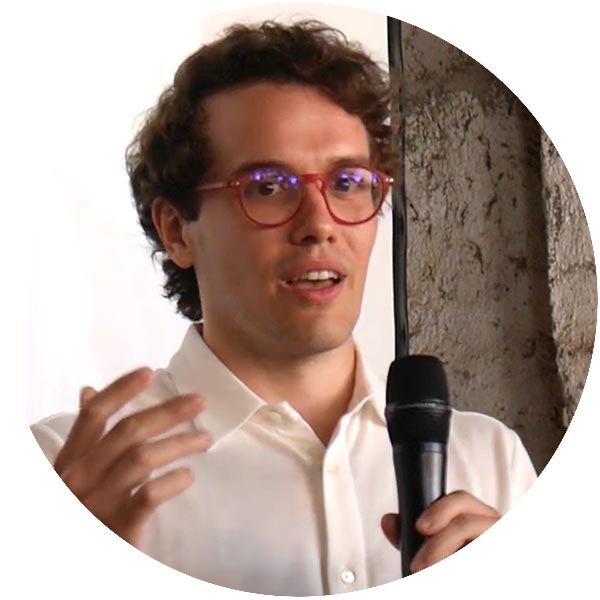
GIACOMO MOLTENI
ESG Analyst, General Atlantic, United Kingdom
Giacomo Molteni has been a member of the Bites of Transfoodmation food movement since its inception. Having combined his studies in finance and environmental policy, Giacomo’s work, currently in private equity, focuses on driving environmental and social sustainability in food systems, and beyond. Living in the USA, Switzerland, the Netherlands, and France has allowed him to experience different parts of global food systems, develop tremendous respect for unique and local food cultures and agriculture systems, and has further solidified his optimism for the role young people can play in transforming food systems.
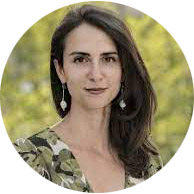
GIULIA MUGELLINI
Post-doc researcher, Università della Svizzera italiana, Switzerland
Dr. Mugellini is member of the Public Integrity Research Group (GRIP), and post-doc researcher at USI. Her expertise concerns the definition of accountability problems, the measurement of corruption, and the evaluation of anti-corruption policies. She has been involved in several international projects related to the abovementioned topics. Among the most recent, a project funded by the Social Sciences and Humanities Research Council of Canada on “Determinants of sustainable Citizen-State relationships: A survey of trust, satisfaction, and organizational deviances” and another one funded by the Swiss National Science Foundation on “Assessing the nature and impact of transnational corruption through the lens of Swiss businesses”. She is lecturer of two courses on “Qualitative research” and “Accountability and Corruption” MA in Public Management and Policy (PMP).
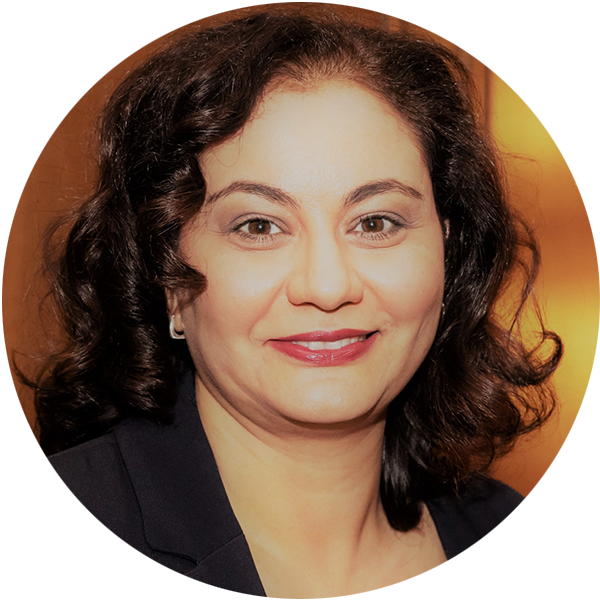
RASCHA OSMAN
Deputy Head of the MENA Division, Head of Section Northern Africa, Federal Department of Foreign Affairs (FDFA), Switzerland
Rascha Osman has been Deputy Head of the MENA Division and Head of Section Northern Africa at the Swiss Federal Department of Foreign Affairs since August 2020. Prior to this position she has been posted as a Head of Cultural Affairs at the Swiss Embassy in Berlin (2016-2020) and in the Section Foreign Policy at the Swiss Mission to the European Union in Brussels from 2012 to 2015. She also served in diplomatic postings in the MENA Division from 2008 and 2012, at the Swiss Embassy in Ljubljana and in Switzerland’s Permanent Representation to the UN in NY.
Before joining the Swiss Diplomatic Service in 2007, she worked at the Swiss Federal Office for Refugees (now Swiss State Secretariat for Migration), where she was among others responsible for international migration dialogues. Rascha Osman has received her M.A. from the University of Berne and has studied English and American Literature, Political sciences and Islamic science.
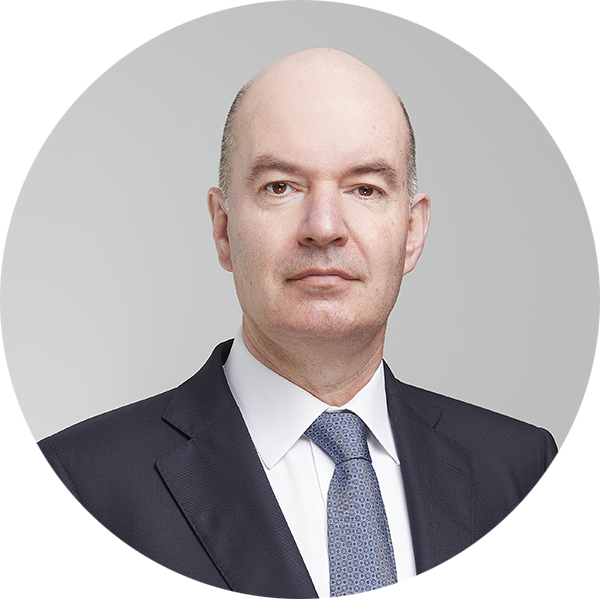
JOSEF RENGGLI
Ambassador of Switzerland to Tunisia and Libya, Switzerland
Ambassador Josef Renggli is since October 2021 the Swiss Ambassador to Tunisia and Libya. Before that, he was the Acting Deputy State Secretary for Europa and Deputy Head of the Directorate for European Affairs in the Swiss Federal Department of Foreign Affairs. From 2014 to 2017, Mr. Renggli was the Deputy Head of the Swiss Mission to the EU in Brussels. From 2010 to 2014, he was the Head of the Economic and Financial Affairs Division of the Embassy of Switzerland in Washington, D.C.. From 2006 to 2010, Mr. Renggli was Head of the Financial Affairs Section of the Swiss Federal Department of Foreign Affairs in Berne where he was in charge of the foreign policy coordination in the field of international tax matters, financial crime and financial regulation. From 2001 to 2006, Mr. Renggli was the Counsellor for legal and political affairs at the Swiss Embassy in Rome, Italy. Before entering the Federal Department of Foreign Affairs as a career diplomat, he had worked as a tax consultant for KPMG and as an administrator for the International Red Cross.
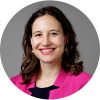
ANGELIKA SCHEMPP
Head of Section Arabian Peninsula and Iran, MENA Division, Federal Department of Foreign Affairs (FDFA), Switzerland
Angelica Schempp is currently serving as Head of Section at the Middle East and North Africa Division of the Federal Department of Foreign Affairs of Switzerland, where she is responsible for the coordination of bilateral relations between Switzerland and the countries of the Arabian Peninsula and Iran.
Ms. Schempp was born in 1982 and completed her BA in Politics and Administration at the University of Hagen. She later obtained a MA in International Affairs from the Graduate Institute of International and Development Studies in Geneva and the Fletcher School of Law and Diplomacy in Boston, focusing on international security, international law and state building. Ms. Schempp has also an academic background in PR, marketing, economics, business administration and tourism management.
After several years of professional experience in the tourism industry, she started working for the Federal Department of Foreign Affairs of Switzerland (FDFA) in 2011. As a PR Manager for the FDFA’s unit “Presence Switzerland” she promoted Switzerland’s presence at the London Olympic Games 2012. Later she supported the Swiss OSCE chairmanship as an Attaché at the Swiss Delegation to the OSCE in Vienna. In 2015 she joined the Swiss diplomatic service and was sent to the Embassy of Switzerland in Cuba. From 2016 to 2019 she worked at the Mission of Switzerland to the European Union in Brussels, where she covered EU foreign policy issues, including the MENA region.
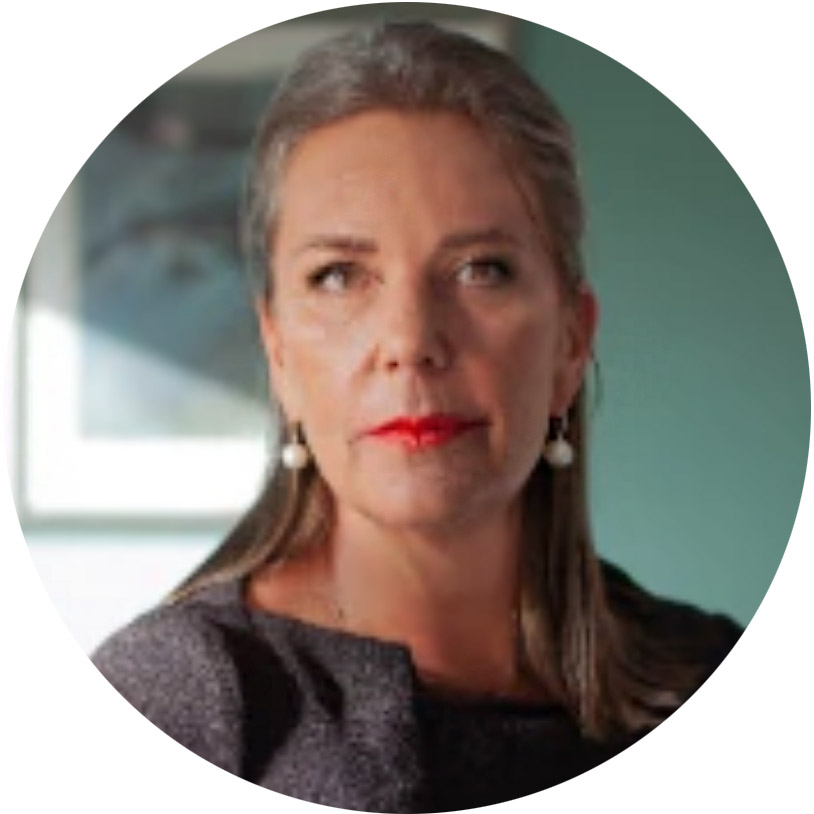
MARION WEICHELT
Ambassador of Switzerland to Lebanon, Switzerland
Dr. Marion Weichelt Krupski is currently the Swiss Ambassador to Lebanon. She holds a master’s degree in law from the University of Zurich, Switzerland, and wrote her doctoral thesis in the field of international humanitarian law. After her studies, she worked as a court clerk at various courts before joining the diplomatic service in 1994. Her first assignments led her to Tel Aviv (1994-1995) and Berne (1996-1998, Directorate of Political Affairs, humanitarian and refugee policy) before working for the International Committee of the Red Cross (ICRC) in Butare, Rwanda and in the regional delegation in Tunis, Tunisia, for two years. Back at the Federal Department of Foreign Affairs (FDFA), she was responsible for Eastern and Southern Africa within the Directorate of Political Affairs.
In 2003 she was transferred to Washington, USA as legal advisor. Back in Berne, she held the position of Deputy Head of Human Resources FDFA from 2006-2009. Subsequently, she was appointed Vice Director of the Directorate of International Law with the title of Ambassador. In 2010, she was appointed Ambassador to New Zealand, Cook Islands, Fiji, Samoa, Tonga and Tuvalu. From 2014-2017, she served as Deputy Chief of Mission in Berlin, Germany, and from 2017-2021 as Ambassador to Senegal, Mali, Gambia, Mauritania, Guinea-Bissau and Cabo Verde before assuming her current position in 2021.
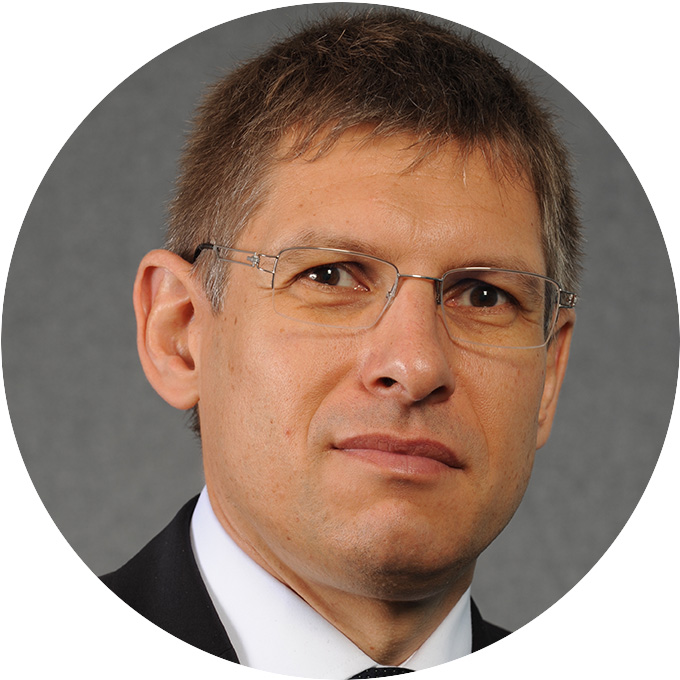
FABRICE BALANCHE
Associate Professor, University of Lyon, France
Fabrice Balanche is an associate professor at the University of Lyon in his native France. Formerly a visiting fellow at the Washington Institute for Near East Policy (2015-2017) and the Hoover Institution (2017-2018), is a political geographer specializing in the Middle East. He was previously the director of the Urban Observatory at the French Institute of the Near East in Beirut from 2003 to 2007, the director of GREMMO (Research Group on the Mediterranean and the Middle East) at the University of Lyon from 2010 to 2015. Fabrice Balanche received a doctorate in political geography from the University of Tours in 2000 and accreditation to supervise research from the University of Lyon in 2013.
He spent ten years in Lebanon and Syria, his main areas of study, since first engaging in fieldwork in the region in 1990. He was one of the first academics and observers who accurately predicted the evolution of the Syrian crisis, thanks to his deep knowledge of the Syrian society and his method of analysis.
His publications include Geopolitics of the Middle East (2014, in French), Atlas of the Near East (2011, in English, French, and Arabic), the book version of his thesis, The Alawite Region and Syrian Power (2006, in French), Sectarianism in the Syrian Civil War (2018, in English), Syria Lebanon : sectarianism and power (2022, French) and many articles on Syria and Middle East,), has been published in February 2018.
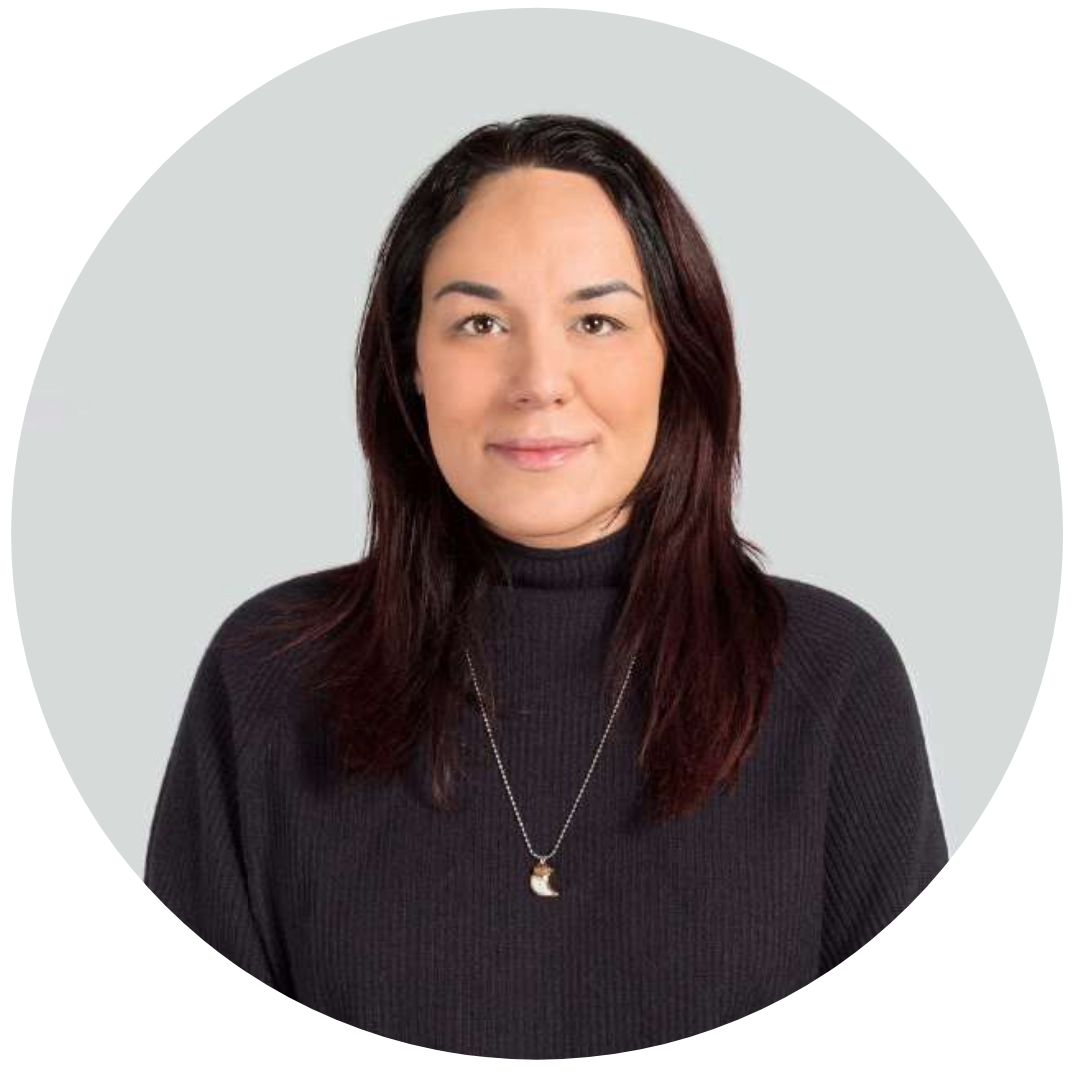
MANUELA BARRECA
Post-doc researcher, Università della Svizzera italiana, Switzerland
Dr. Barreca is a post-doc researcher at Università della Svizzera italiana (USI, Lugano) in Switzerland, where she received her Ph.D. in Economics in 2016. She is a senior lecturer in several courses for the master’s program in Public Management and Policy, a project part of the Swiss Public Administration Network. Her teaching experience is in public management and governance, strategic management, human resource and leadership, accountability, social reporting, and sustainability in the public sector. Since 2013, she has been actively involved in the IIAS network as coordinator of the XIX PSG on Public Network Policy and Management for the European Group of Public Administration (EGPA). She is also, co-chair of the IIAS track on Social Innovation, Commons, and Administration. In the last few years, she has developed a strong interest in developing digital learning and teaching. She represents USI in the IASIA project e-Learning collaborating platform.
She is involved in several international projects. DEeP-GOV – Digital Education Partnership for Effective and Sustainable Governance funded by swissuniversities within Switzerland and the MENA region. Cross-border project, funded by the European Union “INTERREG Switzerland and Italy” on strengthening territorial governance.
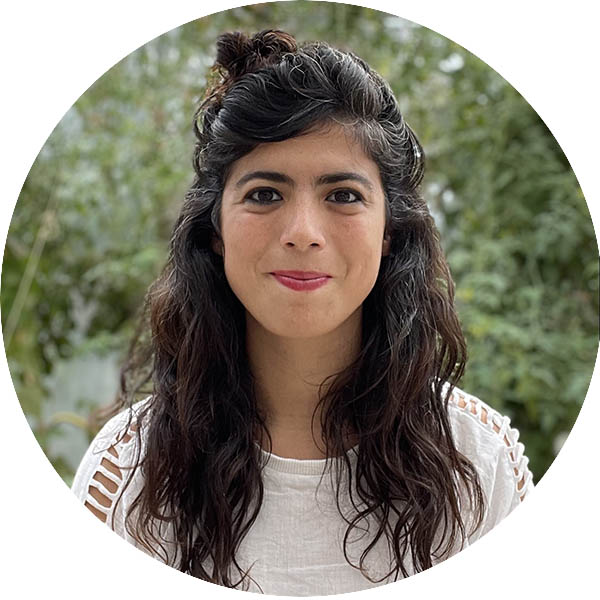
KENZA BENABDERRAZIK
Lecturer and Researcher, Sustainable Agroecosystems (SAE) group, ETH Zürich, Morocco
Kenza Benabderrazik is a lecturer and researcher in the Sustainable Agroecosystems (SAE) group at ETH Zürich. For her doctoral research, Kenza studied the complex interplay between agricultural production, farmers’ economic welfare and ecological preservation, using system dynamics modelling tools. More specifically, she looked at the case of tomato producers in Ghana and Morocco and has a special focus on ways of achieving a more sustainable and resilient production system. Her research is now shifting towards power relations, political ecologies and pathways to food systems transformation.
Kenza is now a lecturer within the SAE group contributing to the development and the implementation of undergraduate and graduate curriculum at the Institute of Agricultural Sciences. In conjunction with her teaching activities, Kenza coordinates art-science projects to open and foster dialogues between artists, scientists and various actors with regard to food systems and agroecological transition, as well as food systems transformation.
Kenza completed her studies in environmental engineering in 2012 at EPFL. For 4 years, she worked as an environmental consultant on various projects related to environmental impact assessment, resource efficiency and circular economy in several countries including Morocco, Tunisia, Switzerland, India and Burkina Faso.
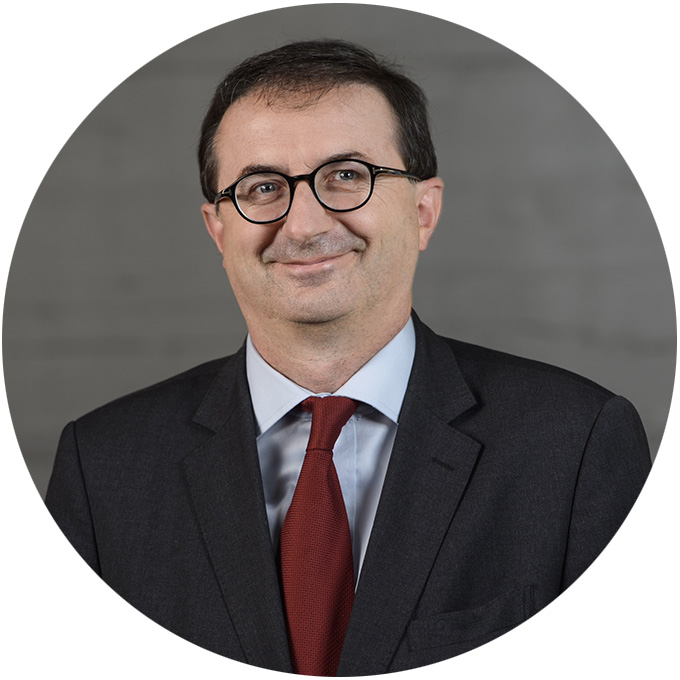
WOLFGANG A. BRÜLHART
Ambassador, Swiss Special Envoy MENA Division, Federal Department of Foreign Affairs (FDFA), Switzerland
Ambassador Wolfgang Amadeus Brülhart serves as Swiss Special Envoy MENA since February 2022. Previously, he was Head of the Swiss Mission to the Organisation for Security and Co-operation in Europe (OSCE), to the United Nations and other International Organisations in Vienna. From 2012 until 2019, he was Assistant State Secretary and Director of the Middle East and North Africa Division (with the title of ambassador) at the Swiss Federal Ministry of Foreign Affairs in Berne (Federal Department of Foreign Affairs FDFA in Bern). Between 2008 and 2012, he served as Swiss Ambassador to the United Arab Emirates, and from 2003 until 2007 he was Head of the Human Rights Policy Section and Head of the Task Force “Human Rights Council” at the Swiss Department of Foreign Affairs in Berne.
Brülhart was always committed to culture and its role in peace processes, as his assignments as Cultural Counsellor at the Swiss Embassies in London (1999-2002) and Sarajevo (1996-1998) testify. At the beginning of his career, he worked as Private Secretary to the former Swiss President, Swiss Minister of Foreign and former Swiss Minister of Home Affairs, Flavio Cotti, and served as Head of Studies and Planning for the General Secretariat of the Christian Democratic Party of Switzerland.
Brülhart attended “Mediation and Negotiation Courses” at the UN and at the Swiss Ministry of Foreign Affairs. In 2016, he was facilitator, during a 14-months negotiations period, between US and Iran on the exchange of prisoners, and in the same year he was recipient of the “Honorary Heart of Sarajevo Award” from the Sarajevo Film Festival, for his “cultural achievements in 1996-1998” in Bosnia and Herzegovina.
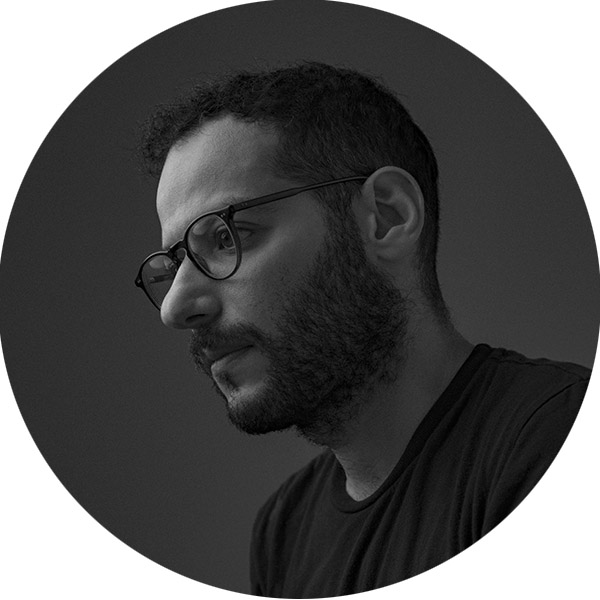
FIRAS ABOU FAKHER
Director, Writer and Composer, Lebanon
Firas Abou Fakher is an award-winning composer, director, and writer. As a composer, Firas’ work has been streamed over 100 million times worldwide. His work spans a wide range of genres, from hit Arabic pop anthems, to solo piano works for museums, and from fully fledged orchestral soundtracks to ensembles with 4 clarinets for an award winning film. His composing credits include: It Gets Darker (2022), Jameel Jiddan (2022), FIXER (2020), Al Shak(2020), Dunya’s Day (2020), Love (2019), Les Saints de Kiko (2019), Meshkal (2016) and others.
As an artist working on engaged art Firas has taught at NYU and Dartmouth University, conducted talks at Concordia University, Columbia University, SciencesPo in Paris and various other universities across the globe as well as worked with humanitarian organisations like Greenpeace, UNHCR, Artasfoundation, and many others.
Firas has been a member of the Recording Academy, New York Chapter since 2018, and is an advisor for the MDLBEAST festival. Apart from being a composer, Firas has been directing and writing since 2019.
In 2019, Firas founded Last Floor Productions, a production house that aims to put Arab talent on the global stage. Last Floor Productions focuses on projects that bring diverse voices into the global entertainment industry, and projects that can reconfigure the Arab narratives worldwide. Last Floor Productions has produced several acclaimed TV series, an award-winning short and cultural films for Apple and the Victoria & Albert Museum.
In 2022, Firas’s debut directorial effort, a horror short entitled ‘It Gets Darker’, is garnering acclaim and awards around the world, with awards and selections from renowned festivals in Japan, Canada, the US, Korea and more.
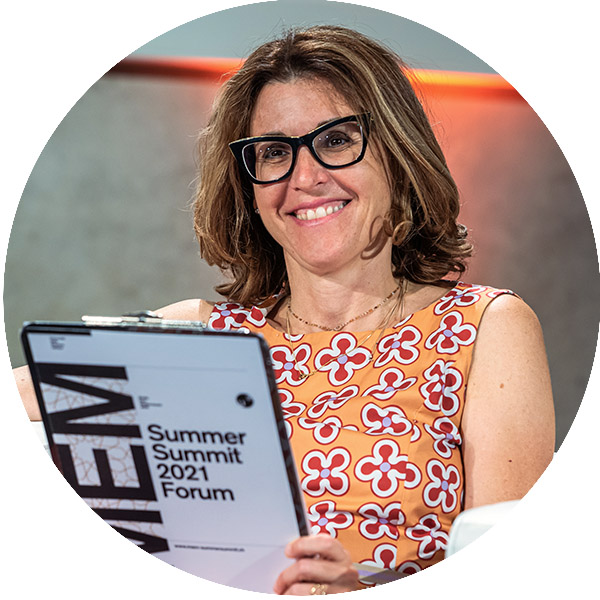
FEDERICA FREDIANI
Ph.D. Senior Researcher, Educational Programme Manager, MEM Freethinking Platform, Università della Svizzera italiana, MEM Summer Summit Project leader, Switzerland
Federica Frediani, Senior researcher and lecturer at the Università della Svizzera italiana, is currently Educational Programme Manager of the Middle East Mediterranean Freethinking Platform. She is a member of the Project Committee and Project Leader of the Middle East Mediterranean Summer Summit. She holds a Ph.D. in Comparative Literature from Università di Siena. Her research interests focus mainly on representations, narratives, cultural productions and political and intercultural dynamics of the Middle East Mediterranean region. She published books and articles on travel writing. In particular the women travel literature, and on the relationships between Northern and Southern shores of the Mediterranean.
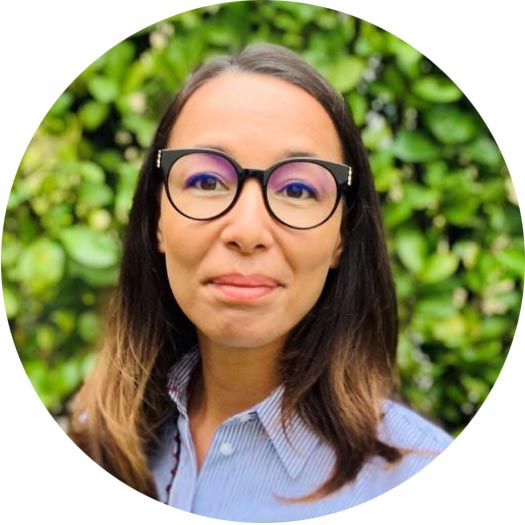
MONICA GUGOLZ
Seminar Facilitator
Project Manager, Institutional Development Service, Università della Svizzera italiana, Switzerland
Monica Gugolz graduated in 2002 with a degree in International Relations from the Graduate Institute of International Studies in Geneva. After finishing her studies, she began her career in the international field, managing development cooperation projects and consultancy mandates in emerging contexts such as Bangladesh, Rwanda and Vietnam. Monica specialised in the management and critical analysis of interventions on behalf of the United Nations, the European Union, Swiss Cooperation and NGOs, with a particular interest in issues of gender equality, women’s rights and women’s economic empowerment. In 2013, Monica co-founded a women’s cooperative in Kigali, Rwanda, which provides employment for more than 50 vulnerable women. She returned with her family to Lugano in 2017 and collaborates with the Federation of NGOs of the Swiss Italian region and the Federation of Women’s Associations of Ticino. Since 2021 Monica has been working as a Project Manager within the Institutional Development Service of the Università della Svizzera italiana.
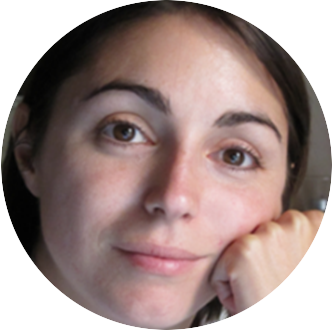
LUNA IACOPINI
Head of International Affairs, HES-SO University of Applied Sciences and Arts Western Switzerland, Switzerland
Luna Iacopini works at the HES-SO University of Applied Sciences and Arts of Western Switzerland where she leads the International Affairs division. In this role, she oversees the international development of the HES-SO Rectorate. As the HES-SO focal point for international programs, she leads strategic partnerships with public, governmental, and academic institutions.
Prior to joining the HES-SO, Luna worked for four years at the Graduate Institute of International and Development Studies in Geneva as Head of the Executive Master in Development Policies and Practices (DPP) for Southeast Asia. In this capacity, she managed the DPP team in charge of Southeast Asia in Geneva and Hanoi.
Luna also worked for four years at the University of Geneva and gained professional experience on educational policies and programmes at the International Labour Organisation in Geneva and various international NGOs and think tanks in Europe. She also worked for two years as an international consultant at the International Labour Organisation Office in Vietnam.
Luna holds a Master of Arts in Political Sciences and International Relations from the University of Florence (Italy), and an Interdisciplinary Master in Development Studies from the Graduate Institute of International and Development Studies in Geneva. She has received her PhD from the University of Geneva.
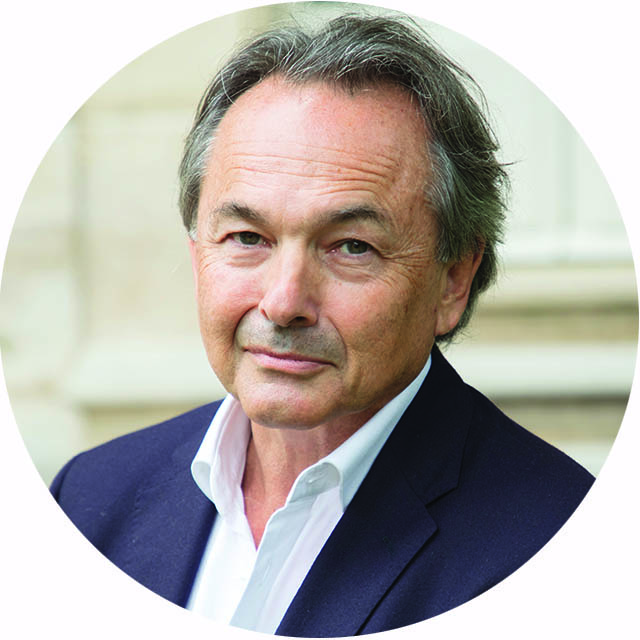
GILLES KEPEL
Professor, PLS Paris Sciences et Lettres-École normale supérieure, France; Adjunct Professor and Scientific director of the Middle East Mediterranean Freethinking Platform, Università della Svizzera italiana, Switzerland
Gilles Kepel is a French political scientist and Arabist, specialised in the contemporary Middle East and Muslims in the West. He is Adjunct Professor and scientific director of the Middle East Mediterranean Freethinking Platform. He is also Professor at the Université Paris Sciences et Lettres (PSL) and director of the Middle East and Mediterranean Chair at PSL, based at Ecole Normale Supérieure.
Originally trained as a classicist, he started to study Arabic after a journey to the Levant in 1974. He first graduated in Philosophy and English, then completed his Arabic language studies at the French Institute in Damascus (1977–78), and received his degree from Sciences Po in 1980. His research interests focus on the current geopolitical configurations and conflicts in the Middle East Mediterranean region, including the impact of Jihadi terror in the wake of the Massive attacks on French and European soil.
He investigated the developments of Islam as a social and political phenomenon in France, with an innovative approach in Islamic studies in the West. He researched on the 2005 French Banlieues riots in the Clichy-Montfermeil area, north of Paris, whence the events sparked. He also carried out comparative studies of political-religious movements in Islam, Judaism and Christianity. His two latest books are titled: Away from Chaos, Columbia University Press (2020) and Le prophète et la pandémie. Du Moyen-Orient au jihadisme d’atmosphère, Gallimard (2021).

AMINE LANDOULSI
Photographer, Tunisia
Amine Landoulsi is a Tunisian photographer. He graduated from the IHEC of Carthage, with a master’s degree in hotel management. In 2010, after a brief career in hotel management, he finally chose photography as a profession.
He describes himself as a self-taught artist, a man who lives and a photographer who observes his environment. His photographs are mainly the result of a synergy between life experience and a singular artistic sensitivity. At a very young age he met the Tunisian photographer Jacques Perez for a reading of his portfolio and it is at this moment that Mr. Perez saw in him the eye of the photographer. Since this meeting, he has maintained the photographer in him, living the joy of being an amateur and the lucidity of a photojournalist. In 2011, he channeled his know-how for the benefit of the Tunisian revolution. Witness of the first riots that took place in the capital, he continues to share his photographs with the international press.
He was co-founder and general coordinator of the Tunis Photo Club for the year 2010/2011. His first experience as a professional photojournalist began with the Associated Press news agency and continued as a photo reporter for the “Anadolu Agency”. To his credit we can count several collective exhibitions in Tunisia and also internationally. He was selected for the Biennale of Photographers of the Contemporary Arab World in November 2015, at the Institut du Monde Arabe, in Paris.
In 2018 he returned to his status as a freelance photographer and held his first personal exhibition “AMEN”, produced by Maison de l’image, an institution that later offered him the opportunity to be involved as a trainer in social projects such as “Vision solidaire”.
Today he is one of the co-founders of the cultural start-up “Art Culture Studio”.
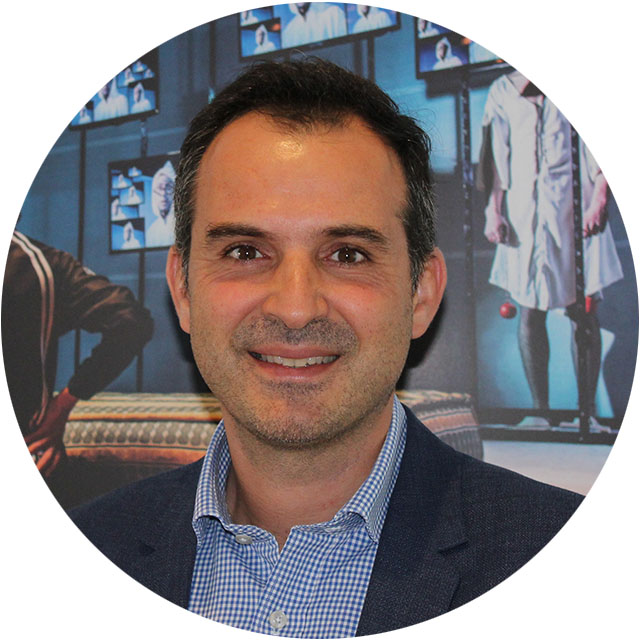
FYRAS MAWAZINI
Country Director for Morocco and Tunisia, Drosos Foundation, Switzerland
Fyras Mawazini graduated from the Institut Universitaire d’Etudes du Développement (IUED) in Geneva. He has more than 15 years’ experience as head of mission for several international NGOs in various countries in Africa and the Middle East. He has been the director of the Drosos Foundation office in Casablanca since 2016.
He joined the Foundation in 2011 and was the country director for Egypt until 2014, after which, in 2015, he was responsible for developing the Foundation’s programmes in Tunisia. He is currently in charge of Morocco and Tunisia and closely follows the transformation of the civil societies through an important network of almost 50 partners in both countries. He participates actively in their dynamism and their role as actors of change by accompanying and supporting them with the implementation of development programmes that address social challenges.
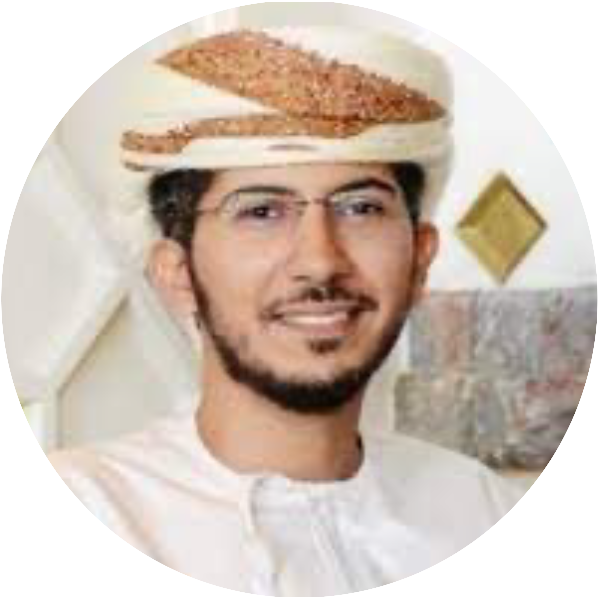
TALAL AL-AULAQI
Managing Director, HASA Energy, Oman
Dr. Talal Al-Aulaqi is from the fifth generation of the Al-Aulaqi family who moved from Yemen to Oman post the Al-Aulaqi Sultanate in 1967. His experience spans from Foreign Affairs and global diplomacy to technology advancement and education support. He is interested in supporting peace and reconciliation in Yemen and in supporting Oman’s diplomacy in the region.
Previously, Al-Aulaqi was also involved in various policy drafting activities in Oman. He contributed to the Oman Vision 2040 in the fields of private sector, investment and international cooperation as well as natural resources and environmental sustainability. He has also supported the Ministry of Foreign Affairs in the drafting and submitting of the first national implementation plan of the Sustainable Development Goals, with a focus on energy efficiency related topics. Moreover, he has worked with supreme council of planning on the tenth five-year plan, with a focus on economic diversification.
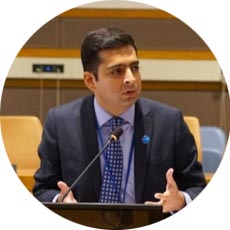
DIVYAM NAGPAL
Programme officer, International Renewable Energy Agency (IRENA), UAE
Divyam Nagpal is presently working as Programme Officer for Energy Access with the International Renewable Energy Agency’s (IRENA) Knowledge, Policy and Finance Centre. Prior to this, he was an independent consultant with the MIT Energy Initiative-led Global Commission to End Energy Poverty, the International Centre for Integrated Mountain Development and REN21.
He has extensive experience with renewable energy policy assessment, off-grid renewables for energy access, socio-economic impacts of the energy transition, the water, energy and food nexus, and regional market analyses. He has also worked in the United Kingdom and India focusing on techno-economic and financial assessments of large-scale and off-grid renewable energy projects, as well as on sector-level energy efficiency benchmarking.
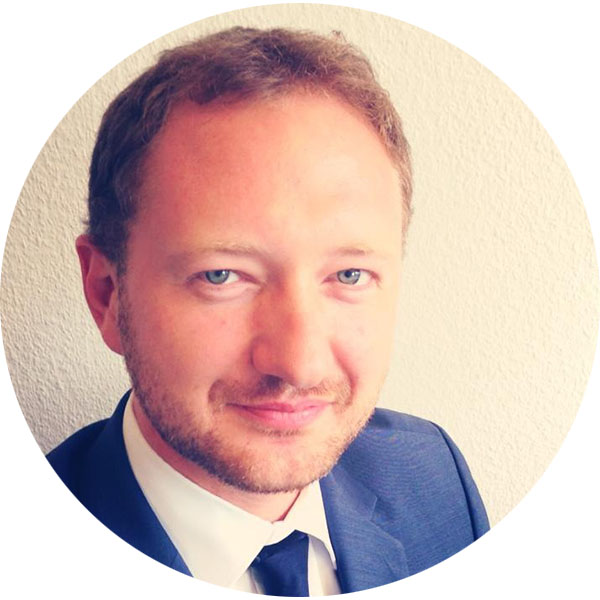
VINCENT PASQUIER
Head of Section Middle East, Federal Department of Foreign Affairs (FDFA), Switzerland
Vincent Pasquier serves since July 2020 as Head of Section Middle East at the State Secretariat, Federal Department of Foreign Affairs of Switzerland in Bern.
After working for the Swiss Embassy in Damascus and the Temporary International Presence in Hebron, Pasquier joined the Swiss diplomatic service in 2009. He was part of the political section of the Embassy of Switzerland in Washington before working on European Affairs. From 2013 to 2016, he headed the Justice and Home Affairs Section in the Directorate for European Affairs in Berne. From 2016 to 2020, he served as Deputy Head of Mission in the Embassy of Switzerland in Abu Dhabi.
Pasquier holds a Master in Communication Systems from the Ecole Polytechnique Fédérale de Lausanne (EPFL), a Licence in Political Science from the University of Geneva and an MSc in International Relations from the London School of Economics.

FERDINAND RICHARD
Artist, Founder and director of A.M.I., France
Ferdinand Richard has been the founder and director of A.M.I. (since 1985), multi-sectorial cultural development local platform, including extensive international cooperation programme and the first incubator for Cultural micro-businesses in France. He is a founding member of La Friche Belle-de-Mai (since 1992), he was its deputy director for 8 years, under the presidence of architect Jean Nouvel. Ferdinand Richard was the first coordinator and expert of the International Fund for Cultural Diversity, UNESCO experts panel. He was president of The Roberto Cimetta Fund since 2009 till 2019 and founding member and executive supervisor of The Fanak Fund since 2019, funding mobility projects for artists and cultural activists in the Euro-Arab-Middle East area.
In 2013 he worked as expert for the french Cour des Comptes (High Court in charge of reviewing public expenses) on the international cultural actions of the French Governement. From 2016 till 2019 he was a member of the governing instance of the Institut du Monde Arabe in the Hauts-de-France Region/France from 2016 to 2019.
He also worked as an expert for Asia-Europe Foundation’s “Mobility First” programme from 2017 to 2020. He is a founder-member and president of Global Grand Central, global internet platform for artists and cultural activists for projects, archives, and narratives since 2017. From 2002 till 2020 he was a board member of the Observatoire des Politiques Culturelles in France.
He also worked as a musician and producer from 1971 to 2000, and he is distinguished Arts and Litterature Knight of the French Republic.
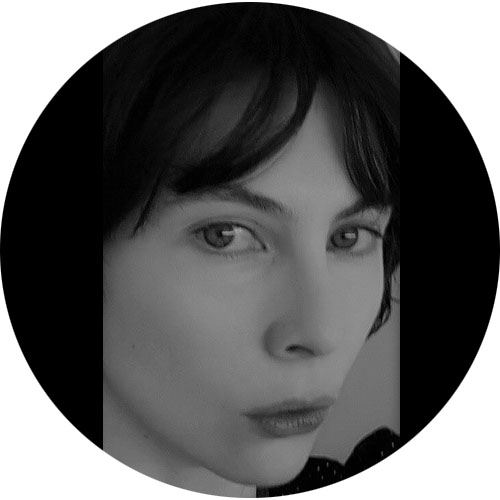
VEGA TESCARI
Lecturer, Università della Svizzera italiana, Switzerland
Graduated in Foreign Languages and Literature (artistic and literary track) in Milan and in Italian language, literature and culture at the Institute of Italian Studies at USI (Alma Bacciarini Prize). She gained her PhD at USI. She held a post-doctoral fellowship from the Swiss National Science Foundation (SNSF) at the Kunsthistorisches Institut in Florenz (KHI, Max-Planck-Institut). She has worked on the poetic production of Charles Olson, on Lalla Romano’s photo-texts, on the literary and filmic oeuvre of Marguerite Duras, Pier Paolo Pasolini and Andrej Tarkovskij, as well as on the writings and works of art of the photographer Luigi Ghirri and the artist Claudio Parmiggiani. She has also been working on translation of poetry, notably of authors such as Robert Creeley and Paul Blackburn. She is a contributor to “Antinomie. Writings and Images” (www.antinomie.it). She is a member of IAWIS/AIERTI (International Association of Word and Image Studies), AWB (Associazione italiana Walter Benjamin), ADI (Associazione degli Italianisti) and of NECS (European Network for Cinema and Media Studies).
Her research interests focus primarily on the links between the visual and audiovisual arts, literature and philosophy, with a particular attention on time and space related issues.
She is the author of critical studies (En suspens. Scenari di tempo. Marguerite Duras, Claudio Parmiggiani, Luigi Ghirri, preface by Antonella Anedda, corsiero editore, Reggio Emilia 2018) and literary texts (Come, postface by Fabio Pusterla, Cronopio, Napoli 2018).
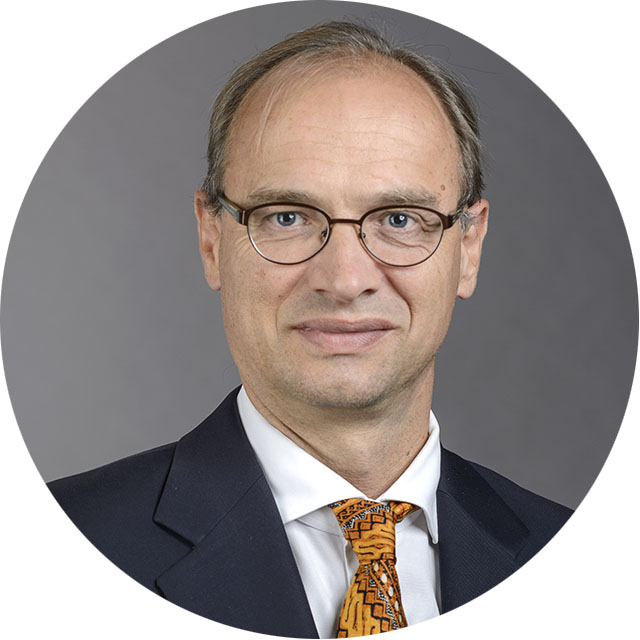
PIO WENNUBST
Permanent Representative, Permanent Mission of Switzerland to the United Nations organisations in Rome, Switzerland
Ambassador Pio Wennubst, an agro-economist specialised in systemic approaches by formation, is an experienced development diplomat with extensive fieldwork. After a period as managing director of a Swiss chemical company, he joined the public sector. Between 1992 and 2008, Wennubst moved first to Nepal to work for the UN and later to different countries, such as Bolivia, Madagascar and Tanzania, to work for the Swiss Agency for Development and Cooperation (SDC).
From 2008 to 2011, he was the deputy permanent representative of the Swiss Mission to the Rome-based UN agencies and from 2010, he was also in charge of reforming the SDC’s Global Programme Food Security. He later joined the Swiss permanent mission to the UN in New York as head of the economic and social development team where he facilitated several resolutions, including the QCPR 2012 in which the United Nations Development System reform is rooted. Subsequently, Wennubst managed for almost six years the Global Cooperation Department as assistant director general of SDC and was in charge of the Swiss support to multilateral funds and programs such as UNDP, Green Climate Fund, UNWOMEN, UNICEF, UNCDF and others.
Currently, Ambassador Wennubst is representing Switzerland at multilateral agencies based in Rome that deal with food security and agricultural development, namely FAO, IFAD, WFP and CFS. In the context of the United Nations Food Systems Summit that took place in New York in September 2021, Wennubst launched the project “Bites of Transfoodmation”, which engages youth to transform food systems through a unifying common vision.

JEAN-PATRICK VILLENEUVE
Professor and Director, Institute of Communication and Public Policy, Università della Svizzera italiana, Switzerland
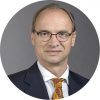
PIO WENNUBST
Permanent Representative, Permanent Mission of Switzerland to the United Nations organisations in Rome, Switzerland
Forum 2022
Programma
Scarica il programma del Forum qui:
Speakers
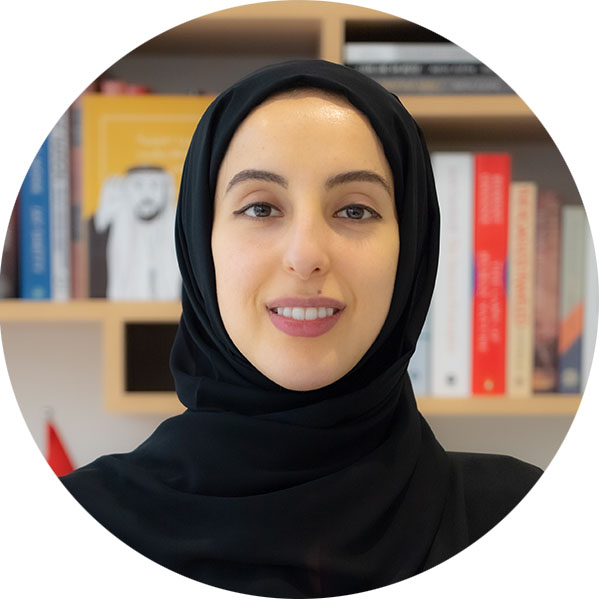
HE SHAMMA BINT SUHAIL FARIS AL MAZRUI
Minister of State for Youth Affairs, United Arab Emirates
H.E. Shamma Al Mazrui was appointed as the UAE’s Minister of State for Youth Affairs in February 2016 at the age of 22. She is also the Chair of Emirates Youth Council and the Vice-Chair of the Arab Youth Center. She serves as the Chairperson for Special Olympics UAE; and is the Secretary General of the Education and Human Resources Council in the UAE and is a board member of Emirates Foundation and a Global Leadership Council member of UNICEF’s Generation Unlimited.
Previously, H.E. Shamma worked in Private Equity at ADIC. She also worked as a public policy analyst at the UAE Mission to the UN, as a Policy Analyst with the Prime Minister’s Office, as a Research Analyst at the UAE Embassy in DC, and as an Education Policy Researcher at Tamkeen.
H.E. Shamma holds a M.P.P with Distinction from the University of Oxford (2015), a B.A. in Economics with a concentration in Finance from NYUAD (2014) and was the UAE’s first Rhodes Scholar.
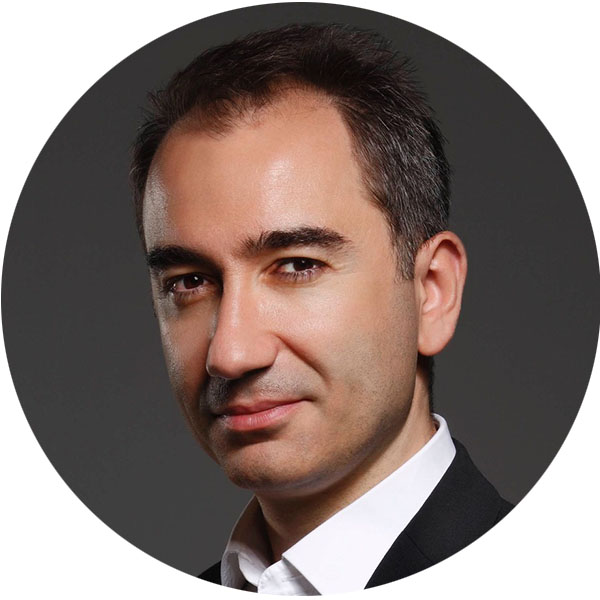
MUSTAFA AKYOL
Journalist and Author, Turkey
Mustafa Akyol is a senior fellow at the Cato Institute in Washington D.C., where he focuses on the intersection of public policy, Islam, and modernity. For nearly a decade, he was a contributing opinion writer for The New York Times, covering politics and religion in the Muslim world. His articles have appeared in many other prominent publications as well, including Wall Street Journal, Washington Post, The Atlantic or Foreign Policy. He is the author of Reopening Muslim Minds: A Return to Reason, Freedom, and Tolerance (2021), “Why, As A Muslim, I Defend Liberty” (2021), The Islamic Jesus: How the King of the Jews Became a Prophet of the Muslims (2017), and Islam without Extremes: A Muslim Case for Liberty (2011).
“The Thinking Muslim,” a popular podcast, defined Akyol as “probably the most notable Muslim modernist and reformer.” In July 2021, the Prospect magazine of the UK also listed him among “The world’s top 50 thinkers.”
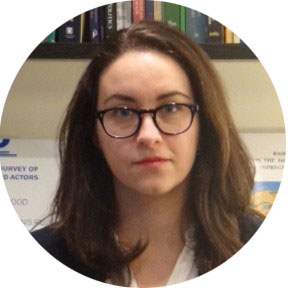
CINZIA BIANCO
Research Fellow on the Arabian Peninsula and the Gulf, European Council on Foreign Relations, Italy
Cinzia Bianco is a research fellow at the European Council on Foreign Relations, where she is working on political, security and economic developments in the Arabian Peninsula and Gulf region and relations with Europe. She is based between Berlin (Germany) and Milan (Italy). Additionally, she is a senior analyst at Gulf State Analytics and a non-resident scholar at the Middle East Institute in Washington DC. Previously, Bianco was a research fellow for the European Commission’s project on EU-GCC relations ‘Sharaka’ between 2013 and 2014.
She holds an MA degree in Middle East and Mediterranean Studies from King’s College London and a PhD in Middle East Politics from the University of Exeter in the United Kingdom. In 2023 Dr Bianco will publish two volumes (in English and Italian) on the geopolitics of the Gulf in the ten years after the Arab Spring.
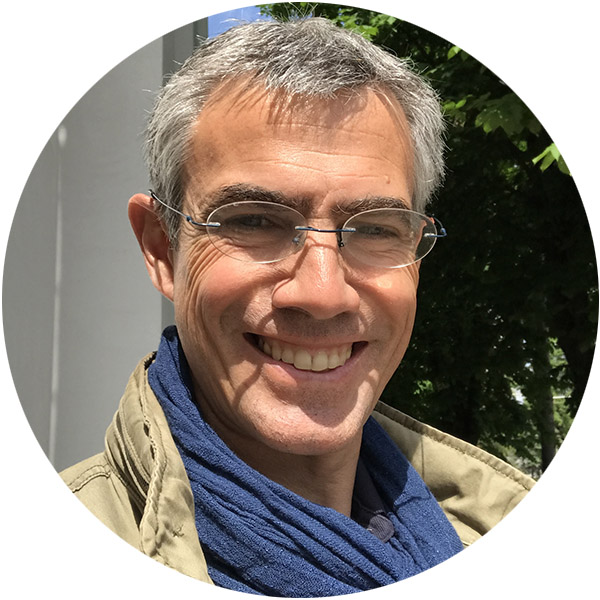
EMILIANO BOS
Journalist, RSI Radiotelevisione svizzera, Switzerland
Emiliano Bos writes on international issues and has produced reports from about forty countries, in particular from Africa and the Middle East. From 2015 to 2021 he was a correspondent for RSI Radiotelevisione svizzera, from the United States. For RSI Radiotelevisione svizzera, he has followed the conflict in Ukraine from the beginning, where he went twice, spending over a month on the ground and making reports for TV, radio and the web. In 2011 he was the author of the TV documentary “Mare deserto” about the shipwreck of dozens of migrants in the Mediterranean. A year earlier he published the book “In fuga dalla mia terra”, a journey along the immigration routes.
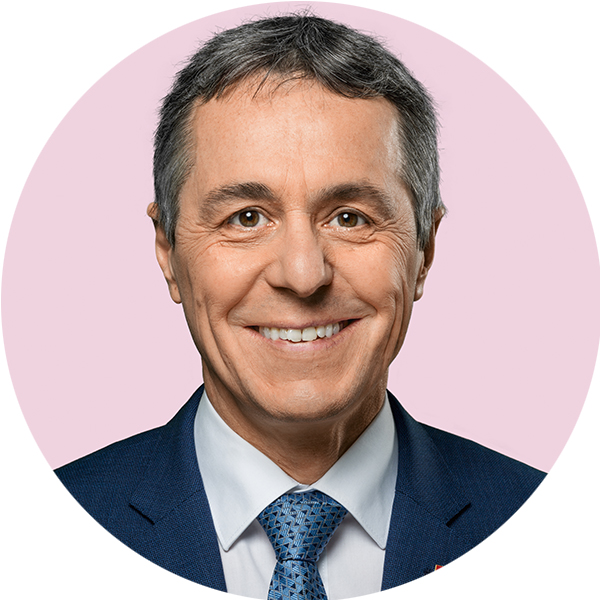
HE IGNAZIO CASSIS
President of the Swiss Confederation, Switzerland
Ignazio Cassis (FDP), elected by the United Federal Assembly on 20 September 2017, took up his post as head of the Federal Department of Foreign Affairs (FDFA) on 1 November 2017.
For two years prior to his election to the Federal Council, Mr Cassis was president of the parliamentary group of the FDP.The Liberals, of which he was a member since his election to the National Council in 2007. From 2015, he chaired the National Council’s Social Security and Health Committee. He was also vice-chair or chair of various parliamentary groups. His political career began in 2004 with his election to the legislative authority of the Ticino municipality of Collina d’Oro.
After graduating in medicine from the University of Zurich in 1987, Ignazio Cassis obtained a doctorate from the University of Lausanne in 1996 and a master’s degree in public health from the University of Geneva the same year.
From 1988 to 1996 he worked as a doctor, specialising 1998 in internal medicine and in prevention and public health. From 1997 to 2008 he was cantonal physician for the Canton of Ticino. From 2008 to 2012 has held the office of Vice-President of the Swiss Medical Association and since 2012 has held the office of various organisations in the health sector (Curafutura, CURAVIVA, EQUAM, RADIX, etc.).
His university teaching activities (in charge of courses) have taken him to various universities, such as Università della Svizzera italiana, Université de Lausanne, Universität Bern and Universität Zürich.
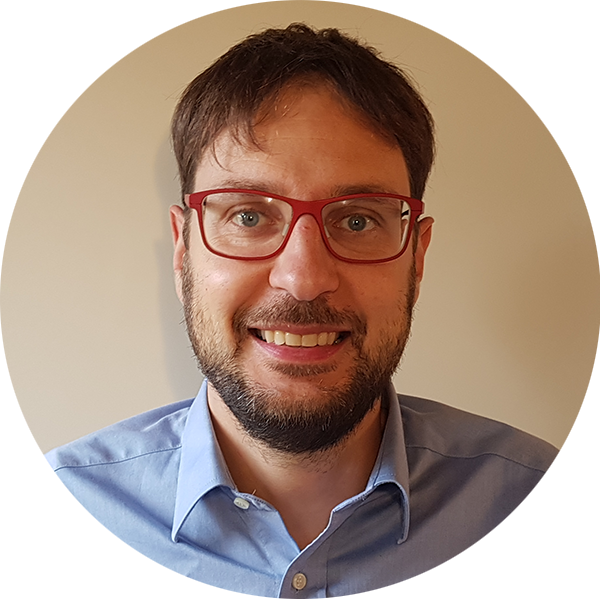
MARTINO DIEZ
Associate Professor, OASIS International Foundation, Catholic University of Sacro Cuore, Italy
Martino Diez is associate professor of Arabic Language and Literature at the Catholic University of Milan. He is the scientific director of the Oasis International Foundation (Milan). From January to July 2019, he was visiting member at the Institute for Advanced Study Princeton – School of Historical Studies.
He is a member of the Scientific Board of the IISMM (Institut d’études de l’Islam et des sociétés du monde musulman) at the École des Hautes Études en Sciences Sociales (EHESS) in Paris and the journals MIDEO, published by the Institut Dominicain d’Études Orientales in Cairo, and Islamochristiana, published by the Pontifical Institute for Arabic and Islamic Studies. He also sits in the Advisory Board of the Middle East Mediterranean Freethinking Platform (MEM) in Lugano, Switzerland, and is a member of the Istituto per l’Oriente “Carlo Alfonso Nallino”. He took part in the study commission on radicalisation and jihadi extremism established by the Italian Government (Presidency of the Council of Ministers) in 2016.
Since January 2020 he has been consultor of the Pontifical Council for Interreligious Dialogue

GILLES KEPEL
Professor, PLS Paris Sciences et Lettres-École normale supérieure, France; Adjunct Professor and Scientific director of the Middle East Mediterranean Freethinking Platform, Università della Svizzera italiana, Switzerland
Gilles Kepel is a French political scientist and Arabist, specialised in the contemporary Middle East and Muslims in the West. He is Adjunct Professor and scientific director of the Middle East Mediterranean Freethinking Platform. He is also Professor at the Université Paris Sciences et Lettres (PSL) and director of the Middle East and Mediterranean Chair at PSL, based at Ecole Normale Supérieure.
Originally trained as a classicist, he started to study Arabic after a journey to the Levant in 1974. He first graduated in Philosophy and English, then completed his Arabic language studies at the French Institute in Damascus (1977–78), and received his degree from Sciences Po in 1980. His research interests focus on the current geopolitical configurations and conflicts in the Middle East Mediterranean region, including the impact of Jihadi terror in the wake of the Massive attacks on French and European soil.
He investigated the developments of Islam as a social and political phenomenon in France, with an innovative approach in Islamic studies in the West. He researched on the 2005 French Banlieues riots in the Clichy-Montfermeil area, north of Paris, whence the events sparked. He also carried out comparative studies of political-religious movements in Islam, Judaism and Christianity. His two latest books are titled: Away from Chaos, Columbia University Press (2020) and Le prophète et la pandémie. Du Moyen-Orient au jihadisme d’atmosphère, Gallimard (2021).
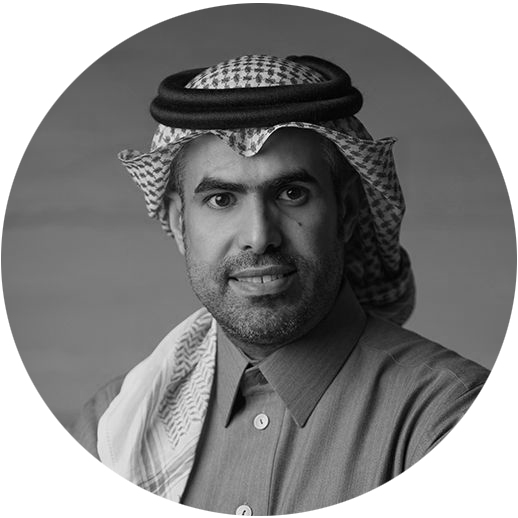
AHMED MATER
Contemporary Artist, Saudi Arabia
Physician turned artist, Ahmed Mater, is one of the most significant voices in Arab contemporary art today. Based in Riyadh, at the epicentre of Saudi Arabia’s current transformation, Mater’s work maps ‘unofficial histories’ in the Kingdom
against the backdrop of 40 years of conflict and reform across the Arab and Islamic world. Embracing the paradoxes of science and faith, Mater’s practice is poetically charged and politically engaged, combining art with cultural activism to consider the impact of historical events on the social and psychological health of the individual, the community, and society at large.
In 2023, Mater will unveil Prognosis, a multi-format art project and retrospective of the artist’s career that includes a major book and touring exhibition. Drawing on four decades of the artist’s personal and historical archives, Mater presents an urgent portrait of his society in dramatic transition – an artistic “prognosis” of the contemporary human condition. Using immersive collage, photography, and film, Prognosis imagines possible futures for his native Saudi Arabia given the unprecedented religious, economic, and political changes that have taken place over the course of the artist’s life.
Mater lives and works in Riyadh, Saudi Arabia. He is represented by Athr Gallery, Jeddah and Galleria Continua, San Gimignano.
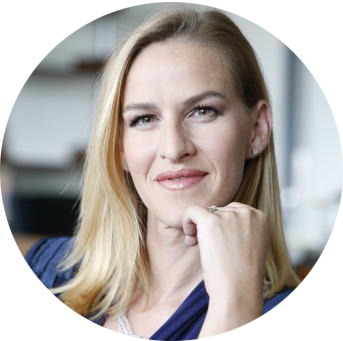
DIANA SEGANTINI
Independent Consultant/Freelance, Art Basel, Switzerland
Diana Segantini is a Swiss/Norwegian citizen who specialised in Arab-Islamic Studies at L’Orientale University in Naples and holds a Masters in International Relations from IUHEI Geneva. Segantini started her professional career in the art and documentary film scene, as well as gaining extensive experience working in different countries serving the UN, various NGOs and more extensively in the Middle East as a delegate for the International Red Cross ICRC for 4 years. Fluent in Arabic and 9 other languages, she has become an expert on the Arab region and with regard to intercultural issues.
In 2008, she founded Segantini Unlimited, an agency specialised in cultural mediation and international cultural productions such as art exhibitions, music events, debates and documentary films, mandated by the Global Ethic Foundation.
Segantini has also led women’s empowerment programs in Saudi Arabia and the rest of the GCC. For 6 years, she was head of Arts & Culture for Swiss TV and radio RSI and a Member of the RSI Board, producing music concerts and over 100 feature and documentary films, acclaimed at various international Festivals.
Since 2019, she has contributed to Saudi Arabia’s Vision 2030 through several projects; in 2019 she was appointed Chief Heritage & Culture officer at Diriyah Gate Development Authority in Saudi Arabia, responsible for this UNESCO Heritage Site, building up several cultural institutions such as museums, academies and an Art District. She subsequently served as senior director for Arts & Culture at AMAALA. Currently, she is Partner for Culture, Heritage & Communication at AEON Strategy, a Saudi firm specialised in true sustainability. Moreover, she is an independent advisor for arts, culture, media & philanthropy in different projects in GCC and Switzerland.
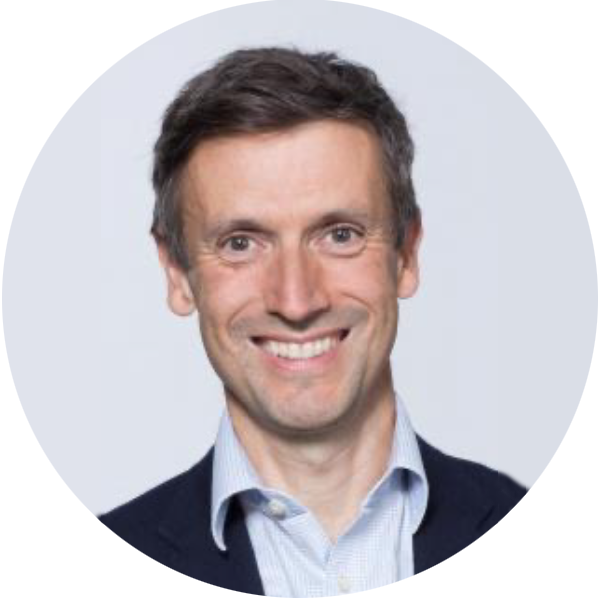
LAURENT VIVIER
Senior Vice President Middle East and North Africa, Exploration and Production,Total Energies, France
Laurent Vivier is Senior Vice President Middle East and North Africa in the Exploration & Production Division of the TotalEnergies Company and is a member of the CDEP since January 1, 2021.
Laurent Vivier began his career within TotalEnergies in 1996 in the Company’s Trading activity. Responsible for trading activities in LPG (liquefied petroleum gas) and then in natural gas for Europe and North America, he held positions in Paris, Geneva, London and Houston.
He returned to France in 2011, he was appointed Vice President Strategic Planning for Gas & Power. Four years later, he was appointed Senior Vice President Gas of TotalEnergies. In this capacity, he accompanied TotalEnergies’s growth in LNG (liquefied natural gas) and the creation of the Gas, Renewables & Power (GRP) division.
Since January 1, 2021, Laurent Vivier has been Senior Vice President Middle East and North Africa in the Exploration & Production branch. In this region, where the TotalEnergies Company came into existence nearly a century ago. The challenge for the branch and its SVP is twofold: to ensure the historical continuity of its Exploration & Production activities and to support TotalEnergies’s climate ambition and the energy transition of the countries in the area.

HRH PRINCESS RYM ALI
President, Anna Lindh Foundation, Jordan
Her Royal Highness Princess Rym Ali founded in 2007 the Jordan Media Institute (JMI), a non-profit institution whose aim is to establish an Arab center of excellence for journalism education with a Master’s program at its core and training-modules in parallel (www.jmi.edu.jo). She has also been a member of the Board of Commissioners of the Royal Film Commission – Jordan since July 2005 (www.film.jo/en). And she is the president of the Amman International Film Festival “AIFF” Awal Film since 2017.
Prior to marrying HRH Prince Ali Bin Al Hussein, Princess Rym worked extensively for international broadcasters including CNN, where she began as a producer in 1998 and later worked as a Baghdad correspondent from 2001 until 2004. She had developed her portfolio working for the BBC, Dubai TV, Bloomberg TV, Radio Monte-Carlo Moyen- Orient, and United Press International-UPI.
A graduate of Columbia University’s School of Journalism, Princess Rym Ali also holds a “Diplôme d’Etudes Avancé” ” in Political Science from the Institut d’Etudes Politiques in Paris and a MA in English Literature from the Sorbonne.
Princess Rym Ali received a prestigious Alumni Award from the Columbia University School of Journalism in April 2011. In July 2011, she was also awarded the “Best International Journalist” prize at the 32nd Ischia International Journalism Awards Ceremony, one of the most renowned journalistic awards in Italy.
In April 2018 The Portuguese President, Marcelo Rebelo de Souza, presented Princess Rym Ali with a decoration, the order of Prince Henry the Navigator, for her efforts in the field of culture and intercultural exchange.
In September 2021, The Anna Lindh Foundation, which works in intercultural dialogue in the Euro-Mediterranean region, announced the decision to appoint the Jordan Media Institute’s founder, Princess Rym Ali, as president of the foundation, succeeding French politician Elizabeth Guigou.
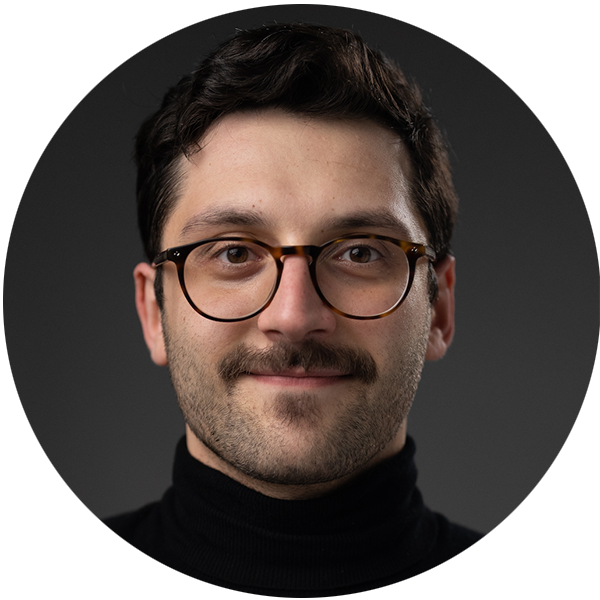
ZAKARIA AL SHMALY
Doctoral Fellow at United Nations University UNU-MERIT, Dahrendorf Fellow at Oxford University – St. Antony’s College, Syria
Zakaria Al Shmaly is a Syrian academic who researches the intersection between governance and technology, with a focus on European asylum policy. He worked in Europe and the Middle East with humanitarian and international organisations such as the International NGO Safety Organisation (INSO), Norwegian Refugee Council (NRC), and the European Parliament. He holds a B.A. in Liberal Arts and Sciences from the University College Freiburg, an M.A. from the European University Institute, and is currently a Dahrendorf Fellow at Oxford University – St. Antony’s College and a Doctoral Fellow at the United Nations University – Maastricht Economic and Social Research Institute on Innovation and Technology (UNU-MERIT). Zak is also a musician and a political theatre
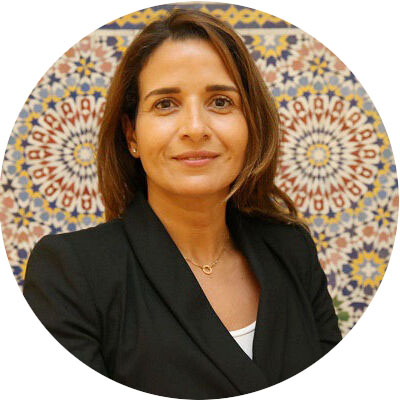
HE LEILA BENALI
Minister of Energy Transition and Sustainable Development, Morocco
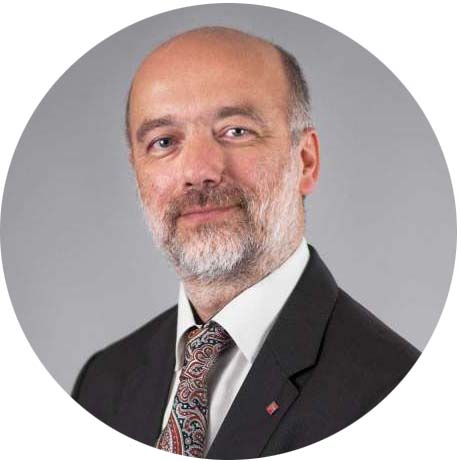
LORENZO CANTONI
Deputy Rector, Università della Svizzera italiana, Switzerland
Lorenzo Cantoni graduated in Philosophy and holds a PhD in Education and Linguistics. He is full professor at USI – Università della Svizzera italiana (Lugano, Switzerland), Faculty of Communication, Culture and Society, where he is director of the Institute of Digital Technologies for Communication.
His research interests are where communication, education and new media overlap, ranging from computer mediated communication to usability, from eLearning to eTourism and digital Fashion, from ICT4D to eGovernment.
He is chair-holder of the UNESCO chair in ICT to develop and promote sustainable tourism in World Heritage Sites, established at USI in 2013, and board member of WHES – World Heritage Experience Switzerland.
He is USI’s Deputy Rector and Pro-rector for Education and Students’ experience. He is director of the Master in Digital Fashion Communication, done in collaboration with the Université Paris 1 Panthéon-Sorbonne, and director of the Master in International Tourism. Cantoni has been Dean of the Faculty (2010-2014) and President of IFITT – International Federation for IT in Travel and Tourism (2014-January 2018).
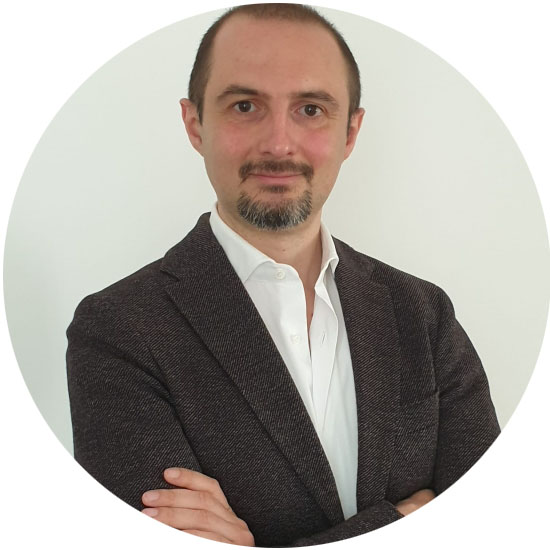
EUGENIO DACREMA
Early Warning Economic Risk Analyst, World Food Programme, Italy
Eugenio Dacrema is head of the economic analysis section of the Analysis and Early Warning Team at WFP. In his work he focuses on national and international macroeconomic dynamics affecting food prices and food security. Previously he was co-head of the Mediterranean Department of the Milan-based Italian Institute for International Political Studies (ISPI). He holds a PhD degree in International Studies from the University of Trento, Italy.
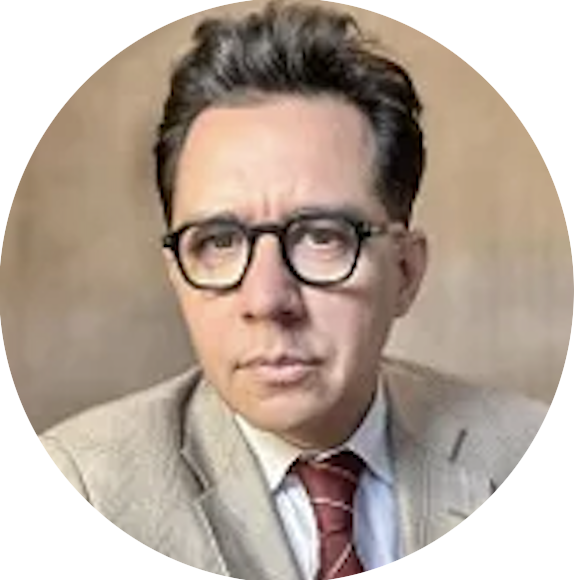
JALEL HARCHAOUI
Associate Fellow, The Royal United Services Institute for Defence and Security Studies, Libya and France
Jalel Harchaoui is a political scientist specialising in North Africa, with a specific focus on Libya. He worked on the same topics previously at The Global Initiative Against Transnational Organised Crime, a Geneva-based NGO, as well as at the Clingendael Institute, based in The Hague. His research has concentrated on Libya’s security landscape and political economy.
A frequent commentator on Libya and Algeria in the international press, he has published in Foreign Affairs, Lawfare, Politique Étrangère, Foreign Policy, and Small Arms Survey. An engineer by trade, Jalel holds a master’s degree in Geopolitics from Paris 8 University.
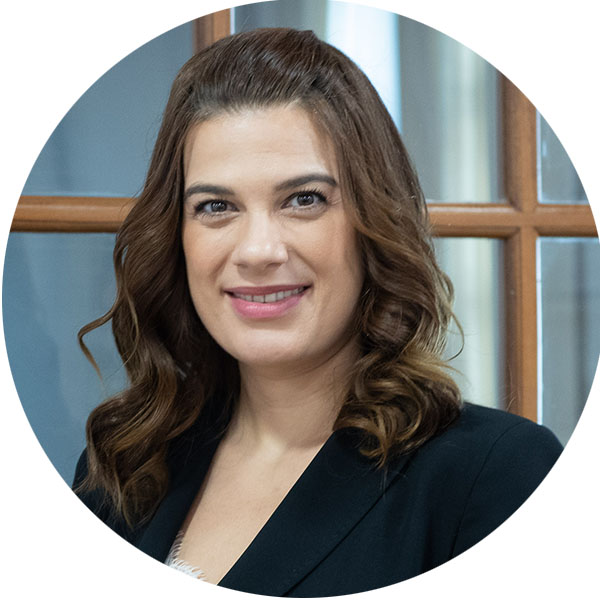
HE NATASA PILIDES
Minister of Energy, Commerce and Industry, Cyprus
Natasa Pilides was appointed Minister of Energy, Commerce and Industry on 10 July 2020.
Previously, on 1 March 2018 she had been appointed as the first Shipping Deputy Minister of the Republic of Cyprus, heading the strategic development and promotion of Cyprus as a world class, integrated, maritime cluster.
From April 2016 to March 2018, Ms Pilides was Director General of the Cyprus Investment Promotion Agency (Invest Cyprus), responsible for the design and implementation of Invest Cyprus’ strategy in investment promotion, investor support and facilitation of reform.
She has more than fifteen years of private sector experience, notably as Director and Regional Chief Operating Officer at Baker Tilly South East Europe, heading the departments of Finance, Marketing, HR, Administration, Operations and IT, for Cyprus, Greece, Romania, Bulgaria and Moldova.
She also worked, for 9 years, at PwC in Cyprus, Milan and London, in audit and tax consulting of multinational companies active in the fields of banking and finance, shipping, insurance, energy, construction and FMCG.
Ms Pilides has wide experience in delivering professional training and courses for ICAEW, ACCA and CIMA exams, in the areas of audit, tax, corporate law, ethics, financial accounting and reporting, at BPP London, a leading professional studies organisation.
She graduated from Oxford University with a first-class honours degree, with distinction, in Modern Languages and Literature (French and Italian). She is a Fellow of the Institute of Chartered Accountants of England and Wales (ICAEW) and a member of the Institute of Certified Public Accountants of Cyprus (ICPAC).
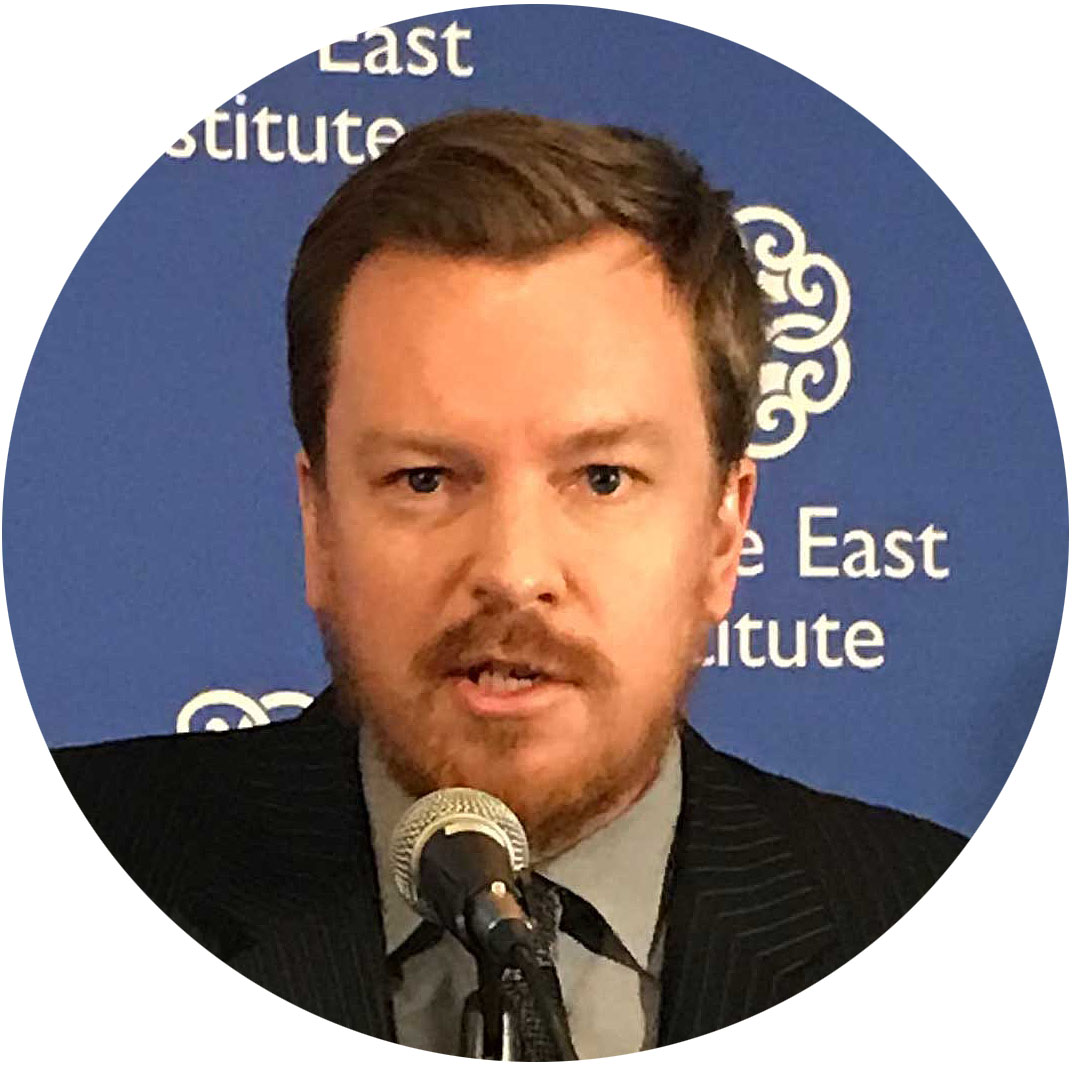
STEPHEN STAPLETON
Artist, Social Entrepreneur and Founding Director, Edge of Arabia, United Kingdom
Stephen Stapleton is a British-Norwegian artist-educator and social entrepreneur known for leading organisations and developing platforms for cultural production, education and diplomacy between the Middle East, Europe and the United States. Following an artist road trip across the Middle East in 2002-2003, Stephen founded Edge of Arabia and the UK charity, the Crossway Foundation, as platforms for creative collaboration between the Middle East (with a focus on Saudi Arabia) and the West. In 2015, Stephen launched Culturunners at MIT to develop artists-led initiatives which utilise culture to transform communities, societies and systems and inspire greater empathy across ideological and geographical borders. In 2017, he was invited to lead international programmes at the newly established Misk Art Institute in Riyadh.
With 20 years’ experience working in the international cultural and educational sector in Saudi Arabia, Stapleton has produced over 50 international exhibitions including at the Venice Biennale, Brooklyn Museum, Los Angeles County Museum of Art, Bates College Museum of Art, Utah Museum of Contemporary Art, Smithsonian Institute, The Kennedy Center, Royal Geographical Society, Arab American National Museum, United Nations and the British Museum; published six internationally distributed books with Booth-Clibborn Editions; including “Offscreen: Four Young Artists in the Middle East” (2004) and “Edge of Arabia: Contemporary Art from the Kingdom of Saudi Arabia” (2010); and produced several artist-focused documentary films with The Guardian, Creative Time, and World VR forum.

HE PIO WENNUBST
Permanent Representative, Permanent Mission of Switzerland to the United Nations organisations in Rome, Switzerland
Ambassador Pio Wennubst, an agro-economist specialised in systemic approaches by formation, is an experienced development diplomat with extensive fieldwork. After a period as managing director of a Swiss chemical company, he joined the public sector. Between 1992 and 2008, Wennubst moved first to Nepal to work for the UN and later to different countries, such as Bolivia, Madagascar and Tanzania, to work for the Swiss Agency for Development and Cooperation (SDC).
From 2008 to 2011, he was the deputy permanent representative of the Swiss Mission to the Rome-based UN agencies and from 2010, he was also in charge of reforming the SDC’s Global Programme Food Security. He later joined the Swiss permanent mission to the UN in New York as head of the economic and social development team where he facilitated several resolutions, including the QCPR 2012 in which the United Nations Development System reform is rooted. Subsequently, Wennubst managed for almost six years the Global Cooperation Department as assistant director general of SDC and was in charge of the Swiss support to multilateral funds and programs such as UNDP, Green Climate Fund, UNWOMEN, UNICEF, UNCDF and others.
Currently, Ambassador Wennubst is representing Switzerland at multilateral agencies based in Rome that deal with food security and agricultural development, namely FAO, IFAD, WFP and CFS. In the context of the United Nations Food Systems Summit that took place in New York in September 2021, Wennubst launched the project “Bites of Transfoodmation”, which engages youth to transform food systems through a unifying common vision.
Guarda il Forum 2022
Per la quinta edizione del Summit abbiamo avuto l’onore di accogliere sul palco e online come relatori SE Ignazio Cassis, la Principessa Rym Ali, SE Shamma Bint Suhail Faris Al Mazrui, SE Natasa Pilides, e molti altri relatori che hanno contribuito alle profonde discussioni del Forum. Per vederli tutti, guarda il Forum 2022. Il Forum quest’anno ha portato avanti i seguenti argomenti:
- l’attuale situazione geopolitica della regione;
- la transizione energetica dai combustibili fossili e il passaggio alle fonti di energia rinnovabili;
- l’insicurezza alimentare e il cambiamento climatico;
- il ruolo dei giovani nella regione;
- le diverse evoluzioni del Medio Oriente da un punto di vista culturale e artistico;
- il dialogo interreligioso e interconfessionale.
The best of the MEM Summer Summit – Forum 2022
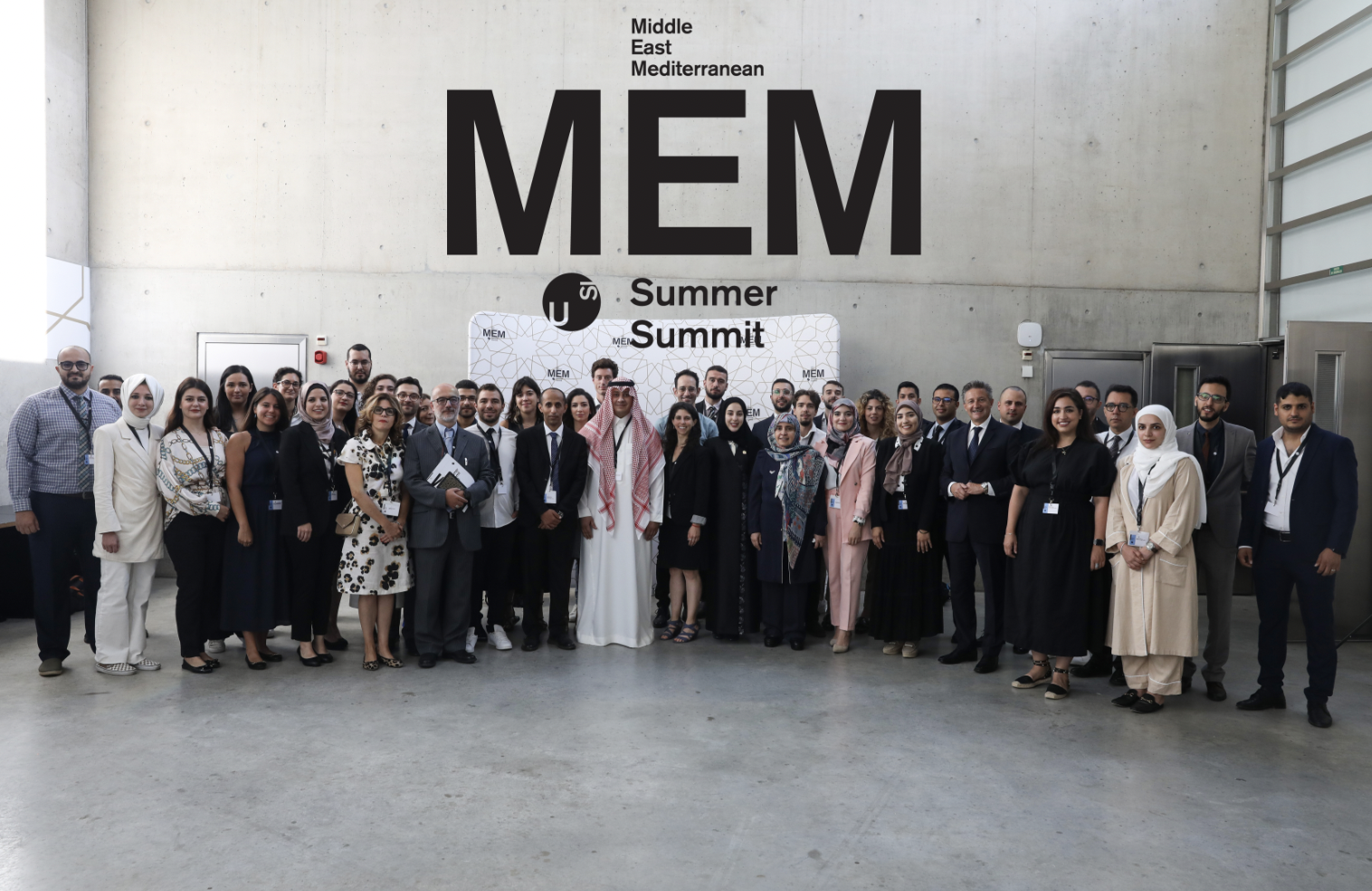
MEM partecipa a Le Vie dei Pardi
Guarda “Fragments From Heaven”, regia di Adnane Baraka
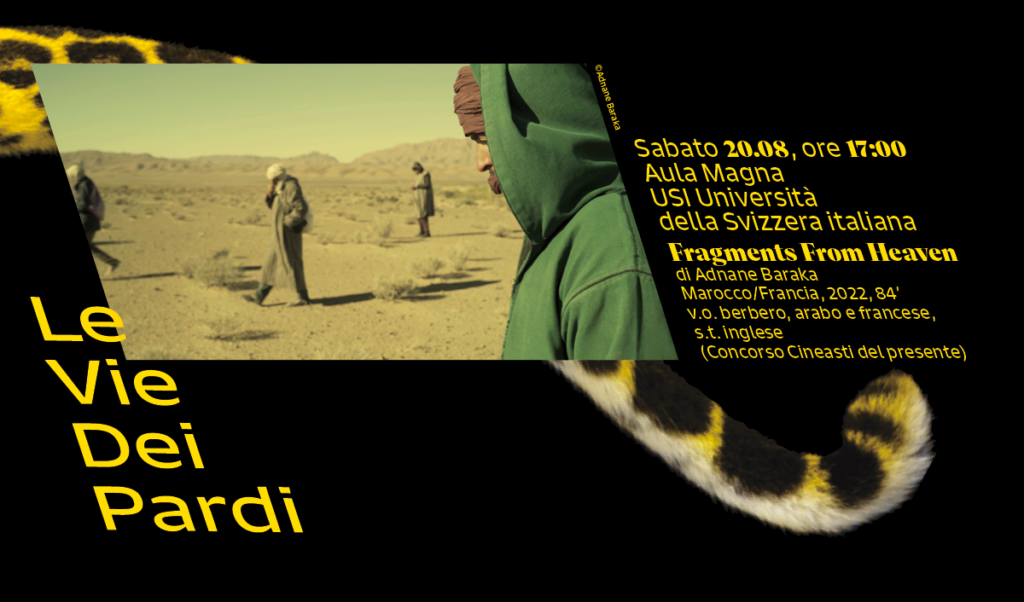
Scoprire i relatori del seminario
Scoprire la lista dei relatori che parteciperanno nel seminario 2022
Il Seminario si terrà dal 18 al 26 agosto e ospiterà 40 giovani change-makers provenienti da oltre 20 paesi. I change-maker discuteranno vari argomenti con i relatori, lavoreranno insieme e scambieranno idee durante una serie di conferenze di esperti, workshop partecipativi, sessioni di brainstorming, gruppi di lavoro e attività culturali.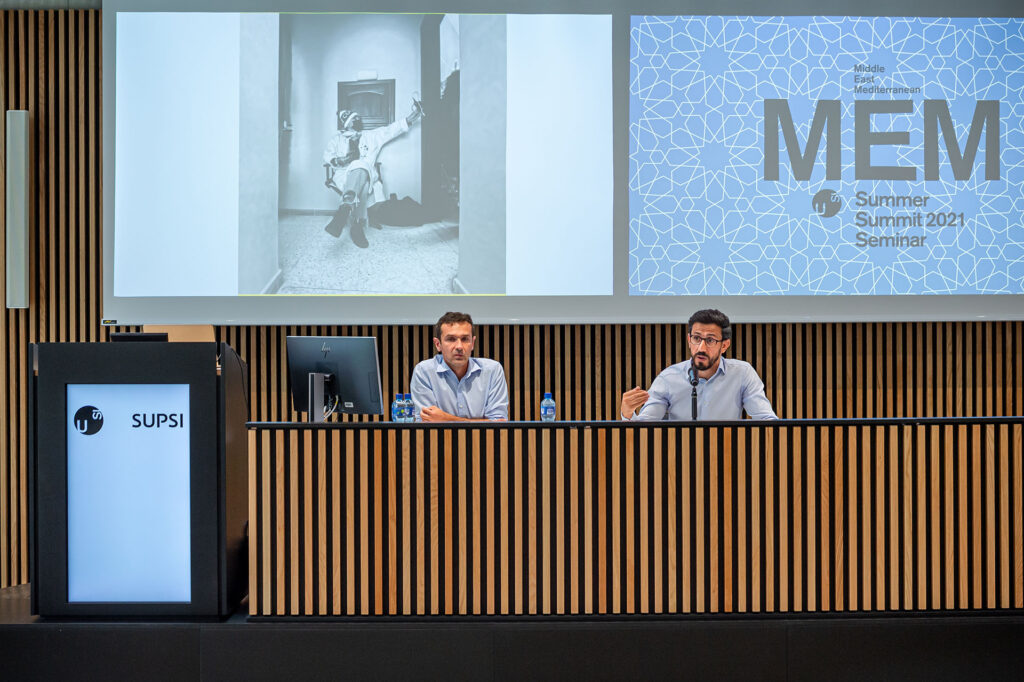
MEM Summer Summit 2022
La quinta edizione del Summit avrà luogo dal 18 al 27 agosto
Il Summit di quest’anno si svolgerà a Lugano, in Svizzera, iniziando con il seminario di nove giorni, seguito dal Forum il 27 agosto. Seguici per saperne di più su partecipazione, programma e opportunità.
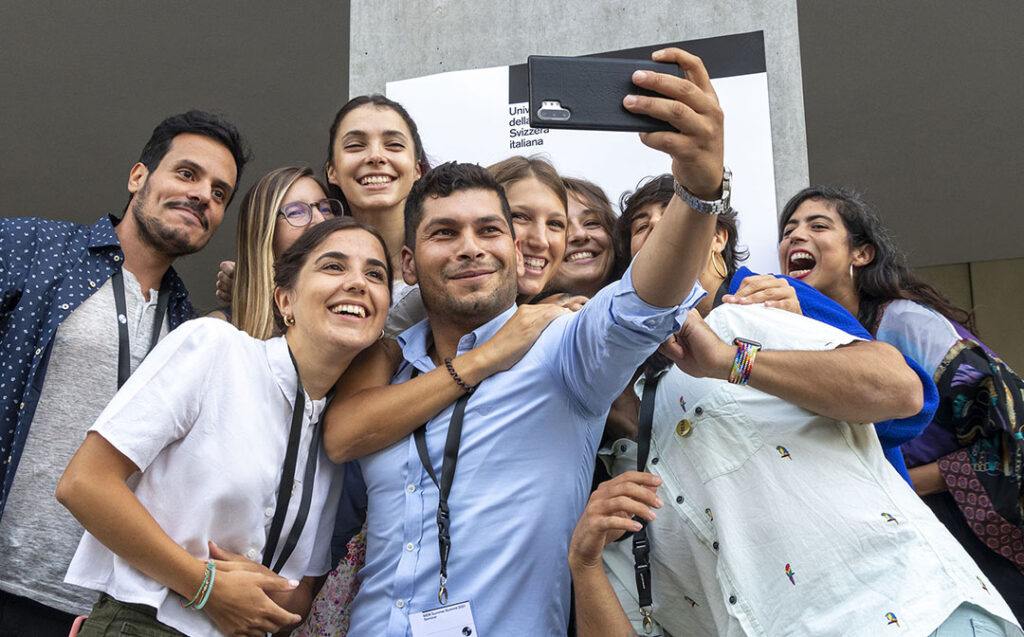
MEM al Snack the System 2022
Snack the System 2022 ai Casali del Pino, Roma
Il MEM Summer Summit si ha unito a Bites of Transfoodmation ai Casali del Pino a Roma, dove espositori innovativi hanno mostrato attraverso i loro progetti orientati al futuro che il cambiamento è possibile e già in atto. I visitatori hanno esplorato le realtà dei droni in agricoltura, alternative alla carne, insetti commestibili, allevamenti verticali e altro ancora.


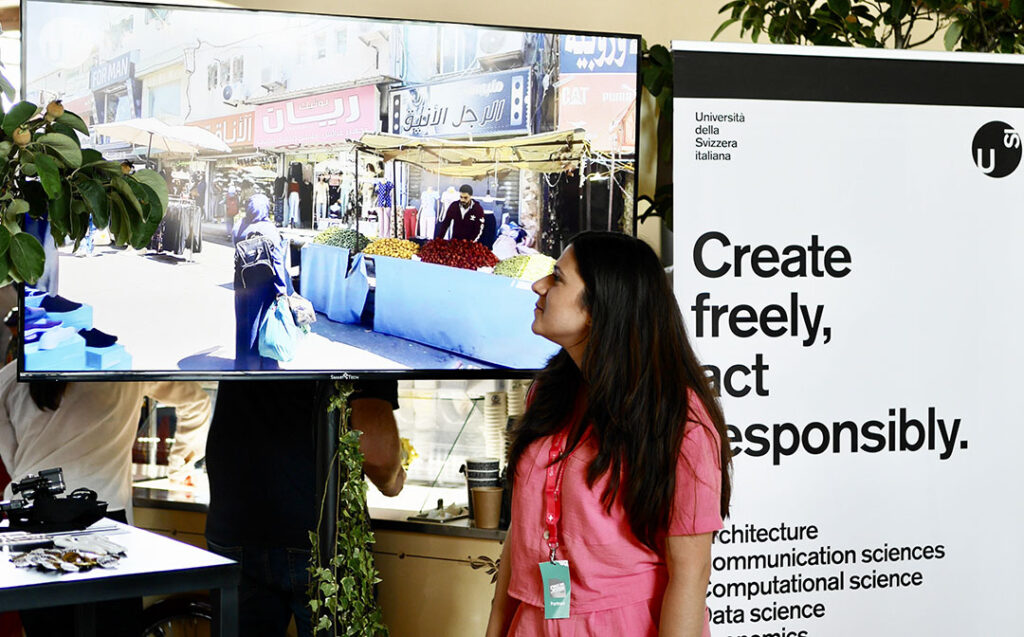
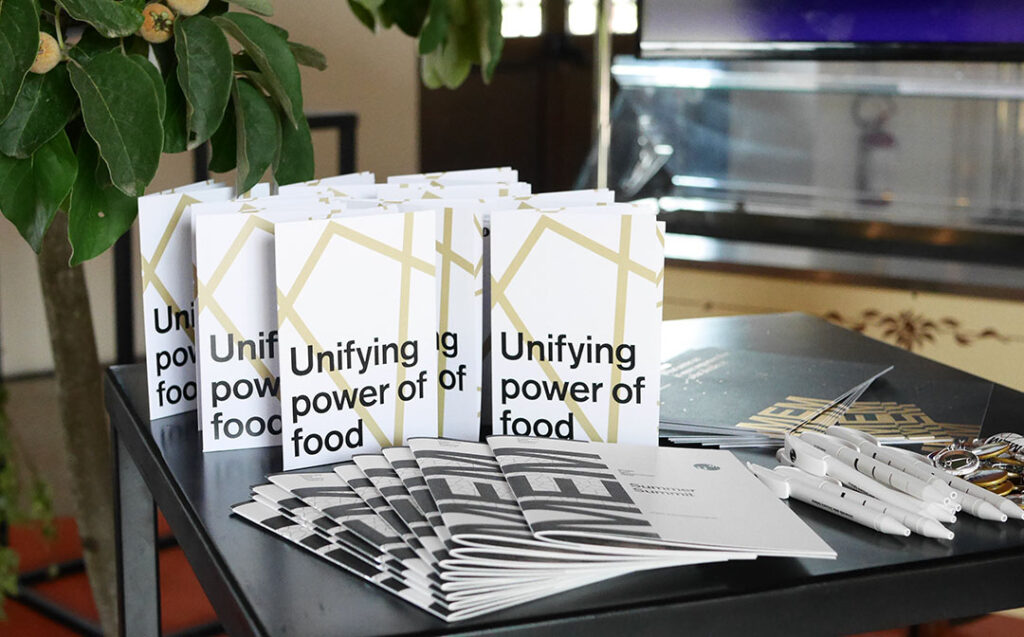
Snack the System 2022 alla House of Switzerland, Milano
Il MEM Summer Summit ha preso parte all’evento, ospitato alla Casa degli Artisti di Milano e promosso da Bites of Transfoodmation, con l’obiettivo di far conoscere le principali sfide e opportunità legate al cibo nella regione del Medio Oriente Mediterraneo. La Dott.ssa Federica Frediani e il MEM Alumnus Iyad Al-Qaisi hanno discusso dell’insicurezza alimentare nella regione e della situazione specifica dei campi profughi durante uno dei panel. Durante la mostra interattiva di quattro giorni, Iyad Al-Qaisi, ha presentato il suo progetto per ripensare la produzione, l’approvvigionamento e la catena alimentare all’interno dei campi profughi in Giordania.
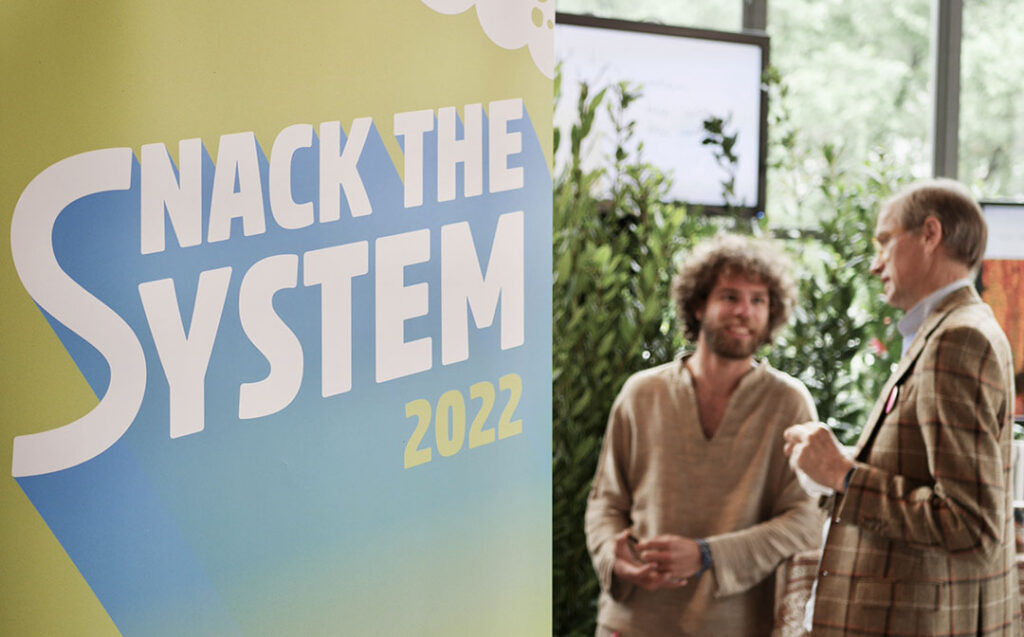
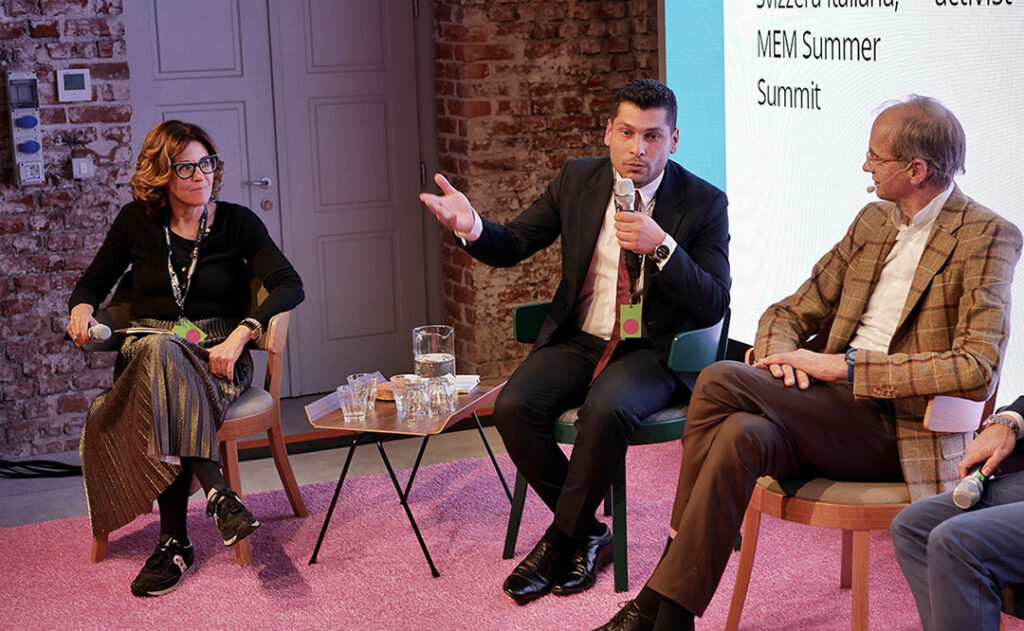
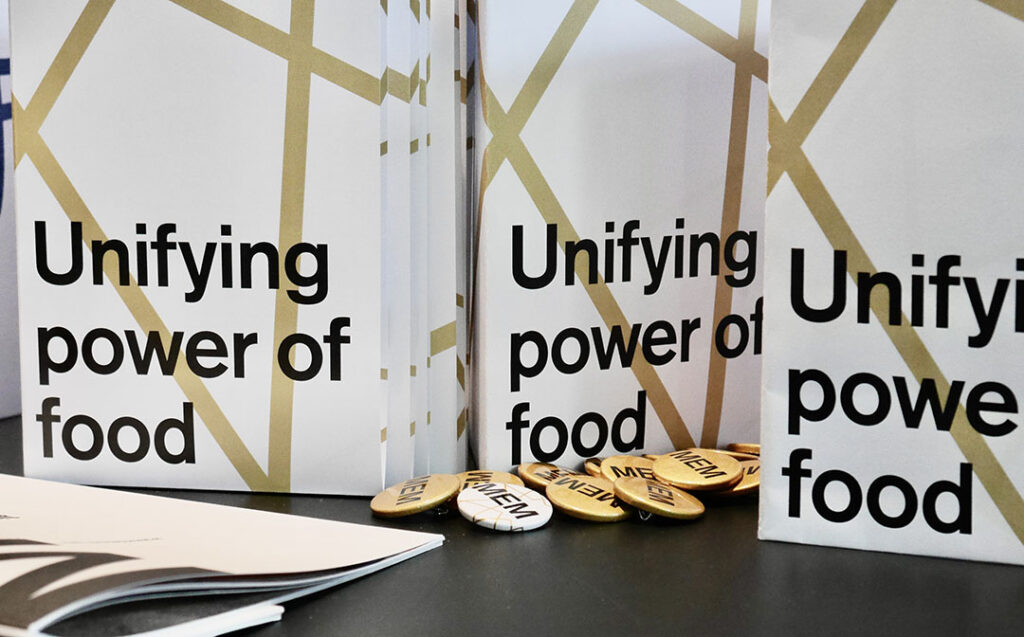
MEM Summer Summit all'Expo 2020 Dubai
Workshop e discussione pubblica: Re-thinking food systems. Visions of a new society through the lens of food.
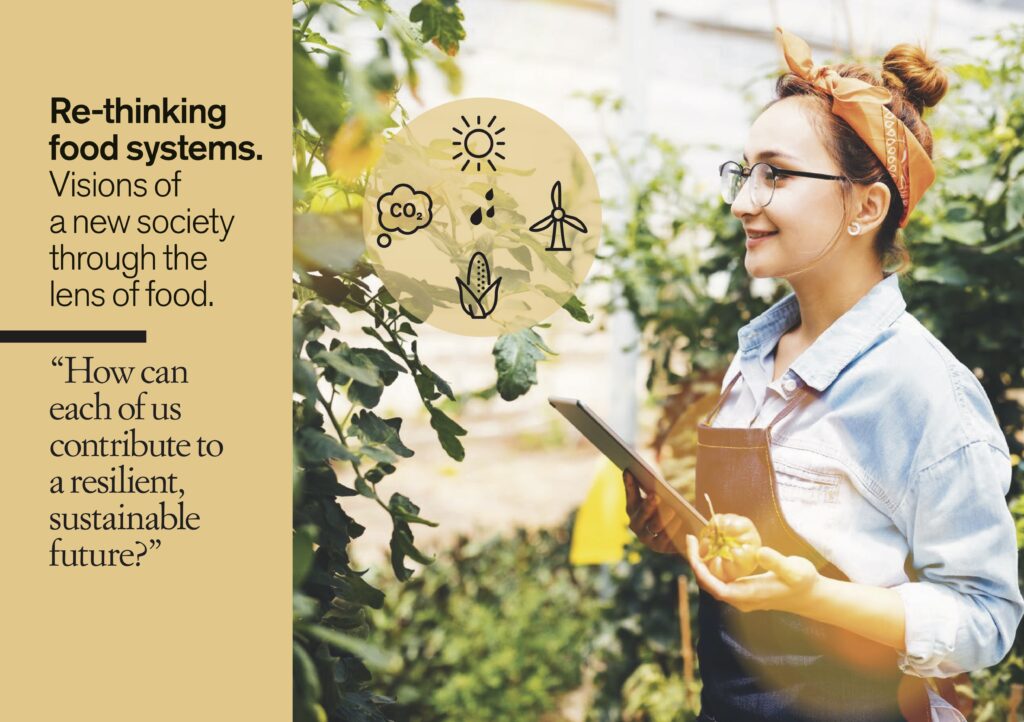
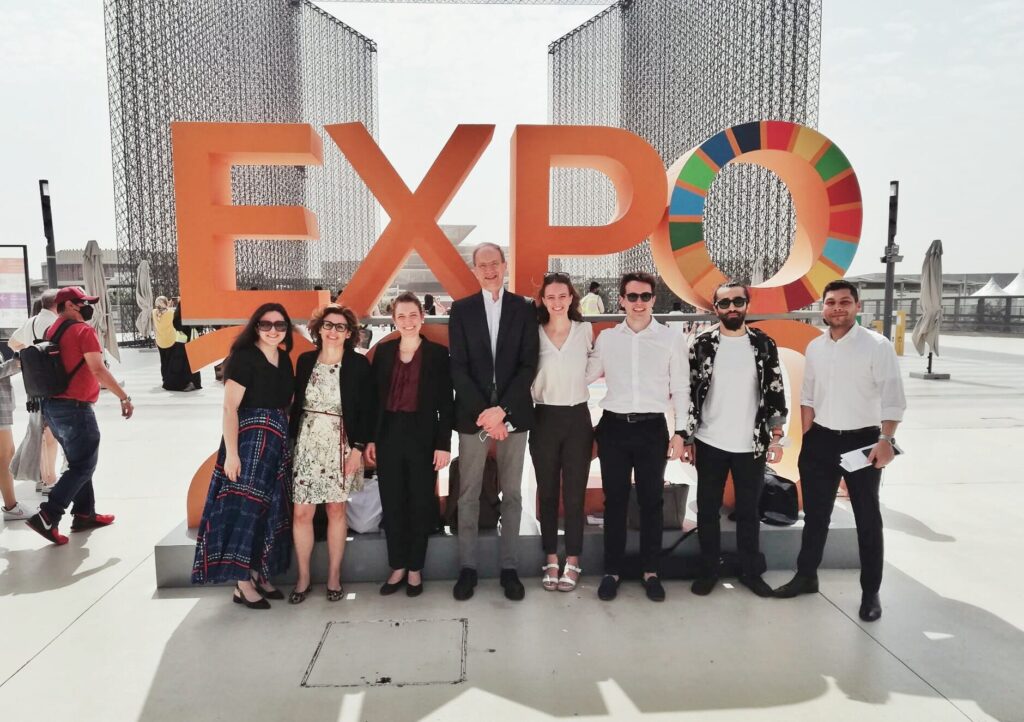
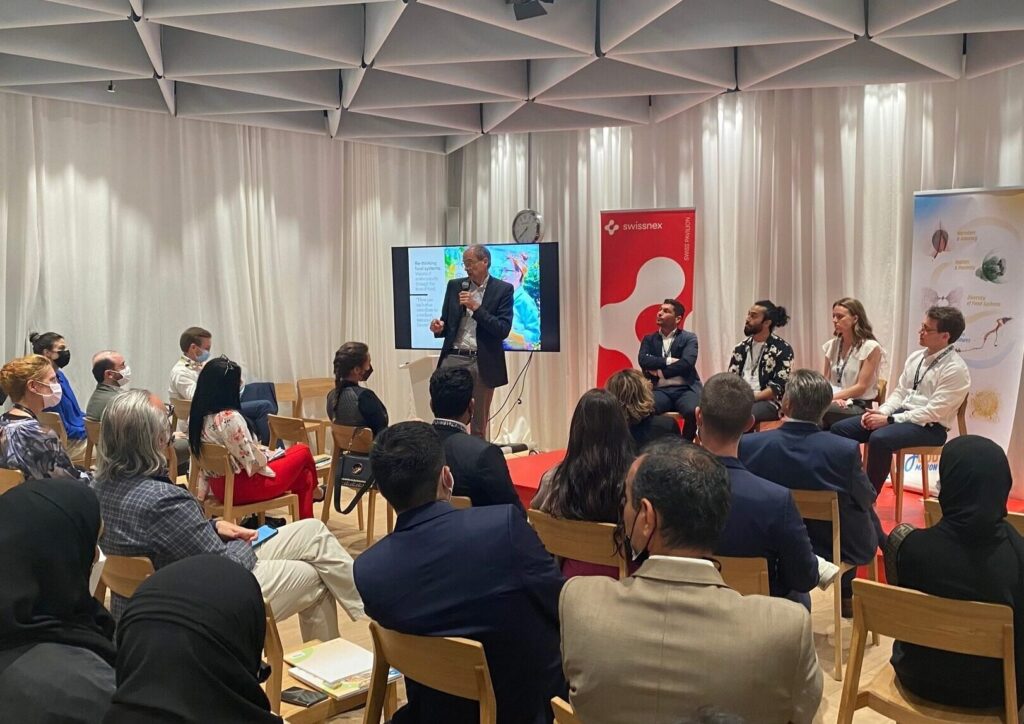
Call for Applications
Candidati ora per essere uno degli young change-maker del Summit
Stiamo accettando candidature per i nuovi young change-maker. Scopri di più per informarti sul profilo di candidati e il processo di candidatura. Data di scadenza: 15 maggio 2022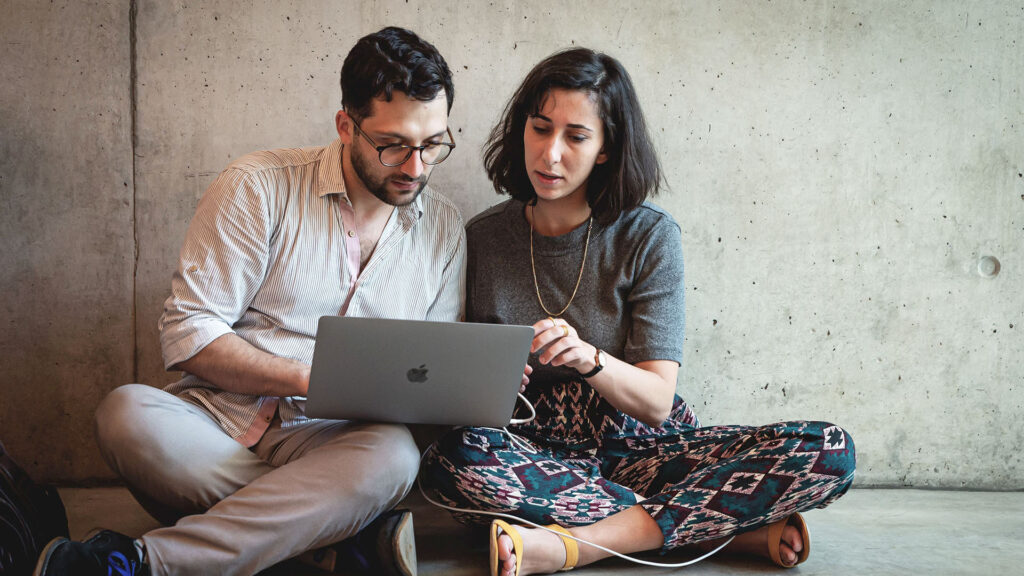
Social Spotlight
Guarda il Forum 2022
MEM Summer Summit Forum 2022
Welcome and opening address by Lorenzo Cantoni, Deputy Rector, Università della Svizzera italiana, Switzerland Keynote speech by HE Ignazio Cassis, President of the Swiss Confederation, Switzerland Keynote speech by HRH Princess Rym Ali, President, Anna Lindh Foundation, Jordan Keynote speech by HE Shamma Bint Suhail Faris Al Mazrui, Minister of State for Youth Affairs, United Arab Emirates
Panel 1 -Geopolitical impacts of the Russian-Ukrainian war on the MEM region
Cinzia Bianco, Research Fellow on the Arabian Peninsula and the Gulf, European Council on Foreign Relations, Italy Jalel Harchaoui, Associate Fellow, The Royal United Services Institute for Defence and Security Studies, Libya and France Emiliano Bos, Journalist, RSI Radiotelevisione svizzera, Switzerland Younes Zangiabaldi, Young change-maker Chairman: Matteo Legrenzi, Professor, Ca’ Foscari University of Venice, ItalyInterview with Talal Al-Aulaqi
Panel 2 – Energetic transition and sustainable development in the MEM region – MEM Summer Summit
HE Natasa Pilides, Minister of Energy, Commerce and Industry, Cyprus Laurent Vivier, Senior Vice President Middle East and North Africa, Exploration and Production, Total Energies, France Andreas Tornaritis, Young change-maker Omaima Doukkane, Young change-maker Moderator: Emiliano Bos, Journalist, RSI Radiotelevisione svizzera, SwitzerlandInterview with Suja Sawafta
Panel 2 – Food insecurity and climate change in the MEM region
Eugenio Dacrema, Early Warning Economic Risk Analyst, World Food Programme, Italy Tamara Kleibo, Young change-maker Sebahat Derin Atiskan, Young change-maker Alaa Alzaghoul, Young change-maker Chairman: HE Pio Wennubst, Ambassador, Permanent Mission of Switzerland to the UN in Rome, SwitzerlandConversation on freedom and tolerance in Islam
Martino Diez, Associate Professor, OASIS International Foundation, Catholic University of Sacro Cuore, Italy In conversation with Mustafa Akyol, Journalist and author, TurkeyConversation on Prognosis: Saudi Arabia – An artist’s perspective
Ahmed Mater, Contemporary artist, Saudi Arabia In conversation with Stephen Stapleton, Artist, Social Entrepreneur and Founding Director, Edge of Arabia, United KingdomClosing remarks by the Young change-makers
Simone Roncoroni, Young change-maker Tracy Nehmé, Young change-maker Boutheina Saidani, Young change-maker Thanks by the hosts of the Forum Diana Segantini and Zakaria Al-Shmaly, and the project leader of the MEM Summer Summit Dr. Federica FredianiMEM Summer Summit 2021
La regione del Medio Oriente Mediterraneo nel contesto attuale
Il 2020 sarà ricordato come l’anno della pandemia COVID-19 e del crollo del prezzo del petrolio, e di inaspettati sconvolgimenti che hanno interessato la regione del Medio Oriente Mediterraneo arrivando anche alle periferie europee. Si è verificata una frammentazione del conflitto israelo-palestinese che è ripreso nel 2021. Da un lato vengono firmati gli Accordi di Abramo, che includono Stati Uniti, Emirati Arabi Uniti, Marocco e Sudan, Israele, aggregando Egitto e Arabia Saudita, con uno sguardo sull’Iraq. D’altra parte, l ‘asse “Fratellanza-sciiti” riunisce Gaza, Qatar, Turchia e Iran con il sostegno ad hoc della Russia. In concomitanza con questi sconvolgimenti sismici, Beirut esplode, rifugiati e migranti illegali si riversano in Europa; il presidente turco Erdogan cerca di fare di Istanbul il centro globale dell’Islam. Il terrorismo colpisce ancora, in Francia e in Austria, in nome di un jihadismo senza organizzazione, facendo affidamento sull'”atmosfera” creata da “istigatori” che mobilitano folle e social network nel mondo musulmano, per vendicare il loro profeta contro l’Occidente. Nel frattempo, Biden si trova di fronte al compito di ricostruire la fiducia degli alleati dell’America. Nel 2021, il MEM Summer Summit si concentra su questi temi e fornisce strumenti per analizzare la complessità della regione; contestualizza le attuali configurazioni nella storia globale, per stimolare un’ampia riflessione sulle sfide contemporanee. Questa regione in continua evoluzione ha, infatti, un impatto significativo sulle dinamiche internazionali, sull’Europa e sulle sue strutture politiche.The MEM goes on
Bites of Transfoodmation
Il MEM Summer Summit andrà a Roma per Bites of Transfoodmation. Si tratta di un evento organizzato dalla Rappresentanza Permanente di Svizzera presso la FAO, l’IFAD e il PAM – in partnership con l’Istituto Svizzero, l’Ambasciata svizzera a Roma, Présence Suisse e l’Università della Svizzera Italiana. Ha come obiettivo di essere un punto di partenza per il cambiamento dei sistemi alimentari globali. Federica Frediani e il team del MEM Summer Summit stanno contribuendo a strutturare e organizzare l’evento e saranno presenti a Roma, con un gruppo di MEM Alumni, come facilitatori, speaker e moderatori. Il rettore dell’USI, professor Boas Erez, farà il discorso conclusivo alla Dispute con l’ambasciatrice svizzera a Roma, Rita Adam.Cultural Narratives – New Horizons
Il progetto Cultural Narratives – New Horizons è un’emanazione dello Stream C del Seminario. Si articola in workshop on-line e nella regione del Medio Oriente Mediterraneo. Un team di Alumni del MEM Summer Summit, diretto da Federica Frediani, sta lavorando e dialogando sui seguenti temi:- La mobilità delle persone, idee, culture e merci che trascendo barriere spazio-temporali;
- Il ruolo della cultura e della creatività nel processo di ricostruzione economico-sociale dopo la pandemia del Coronavirus;
- Digitalizzazione delle attività culturali.

